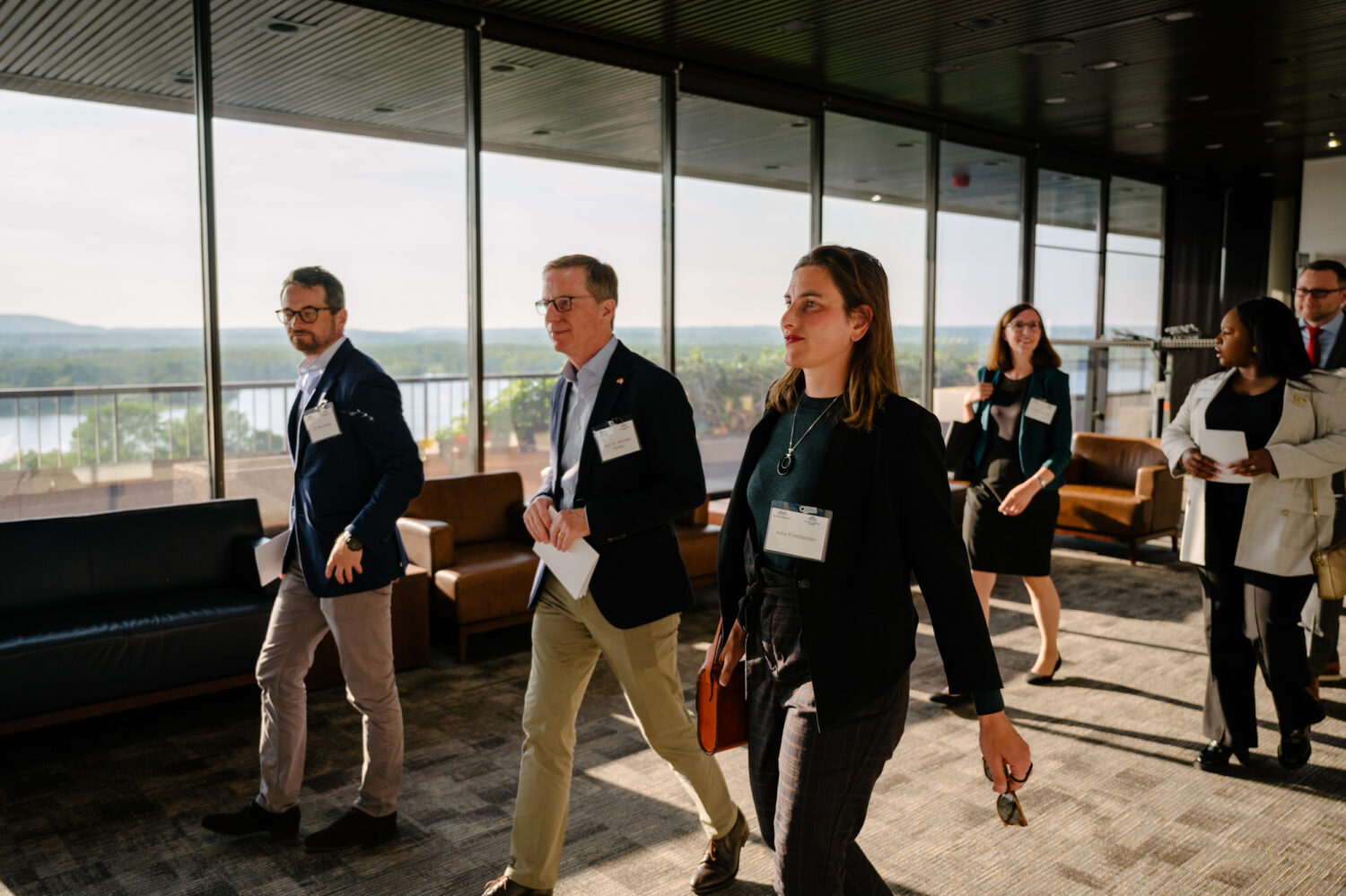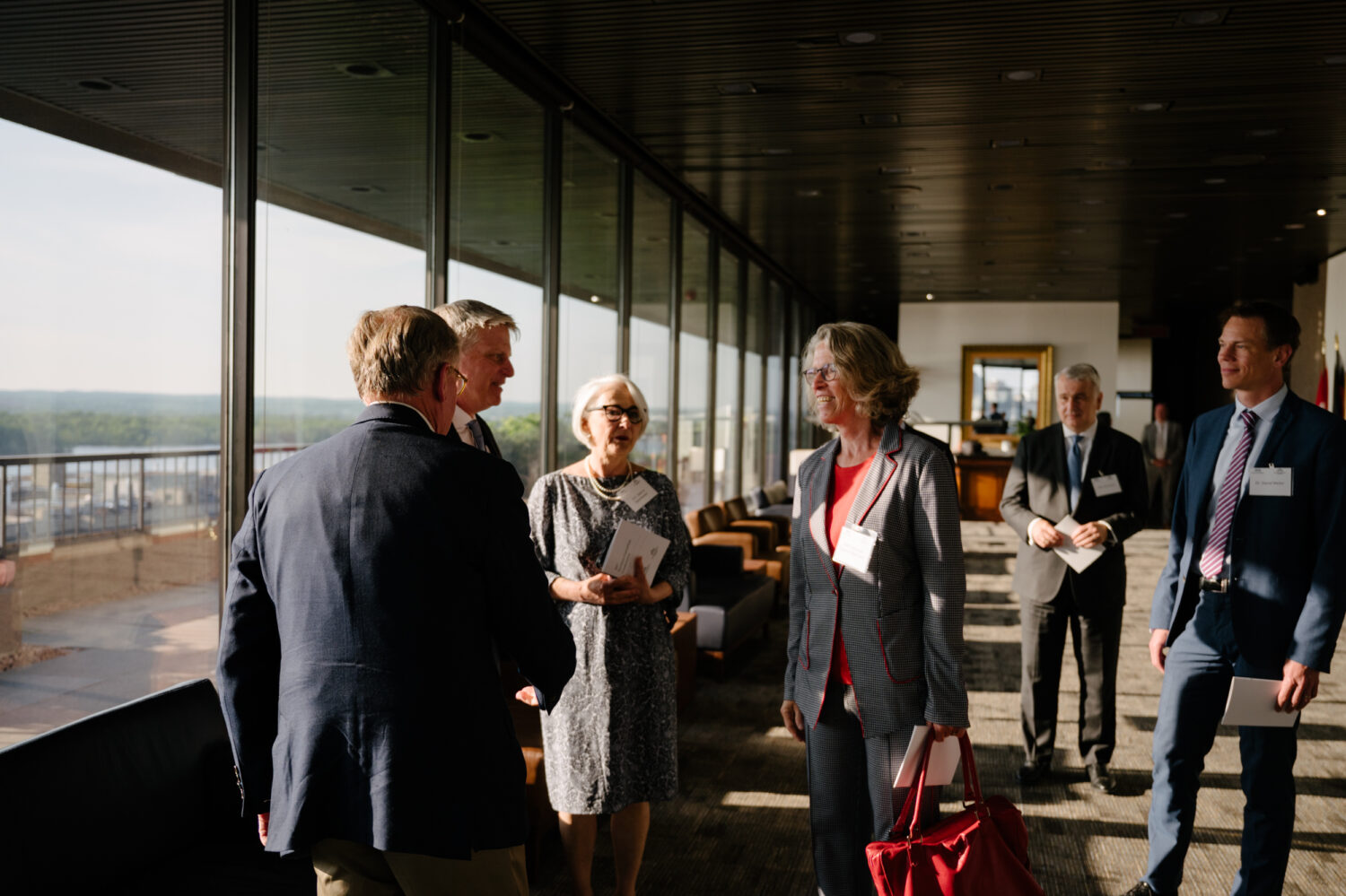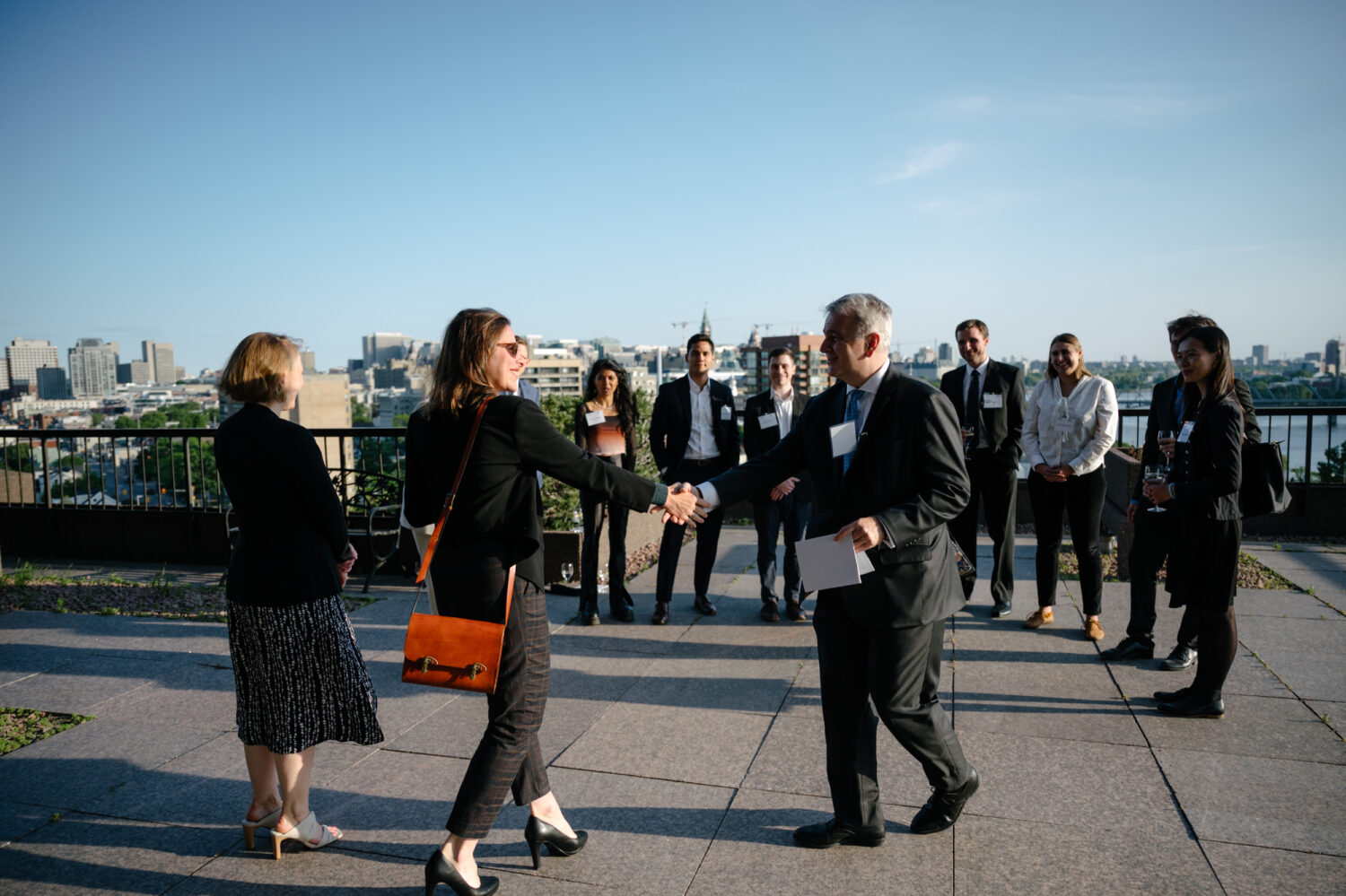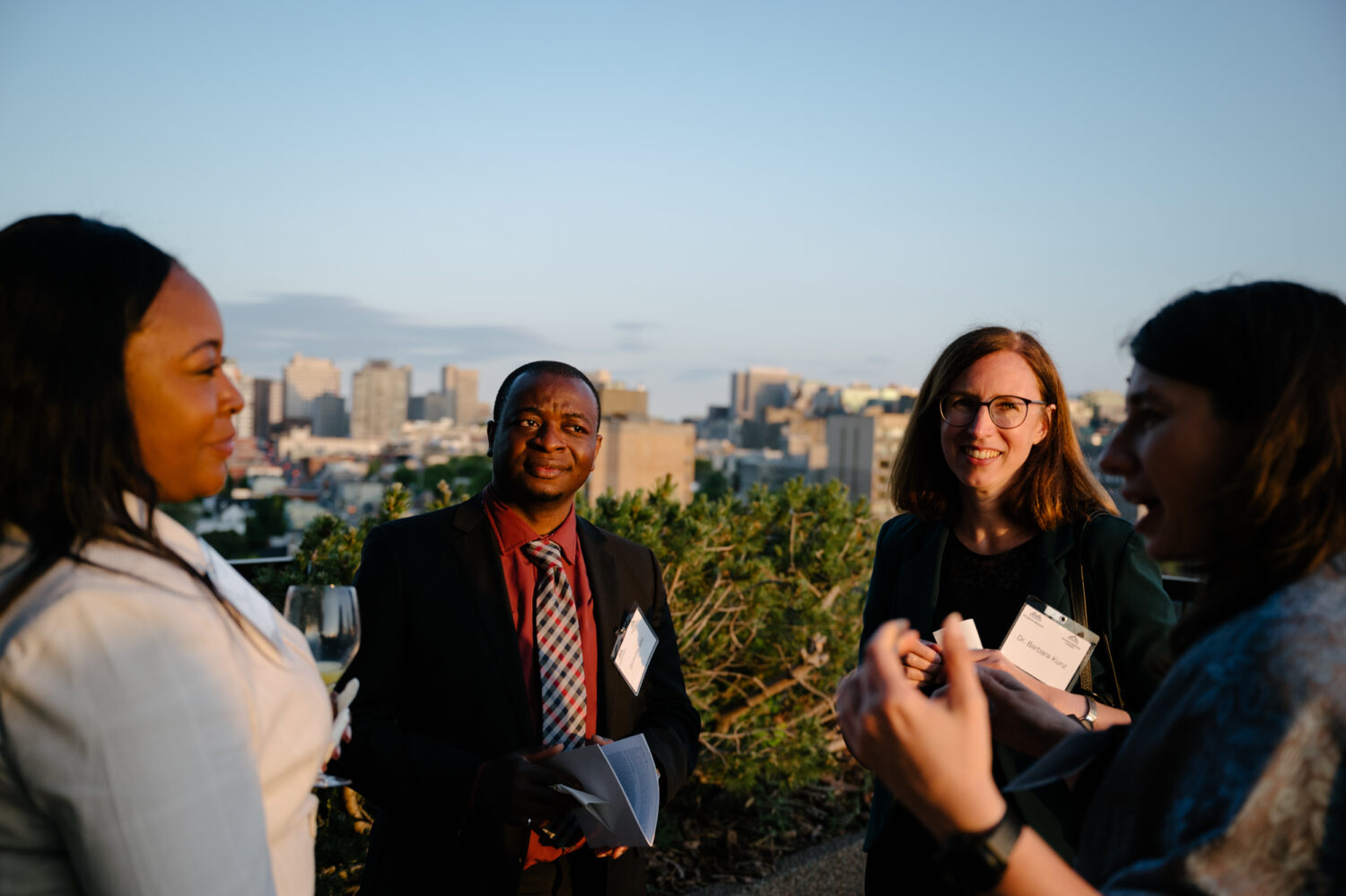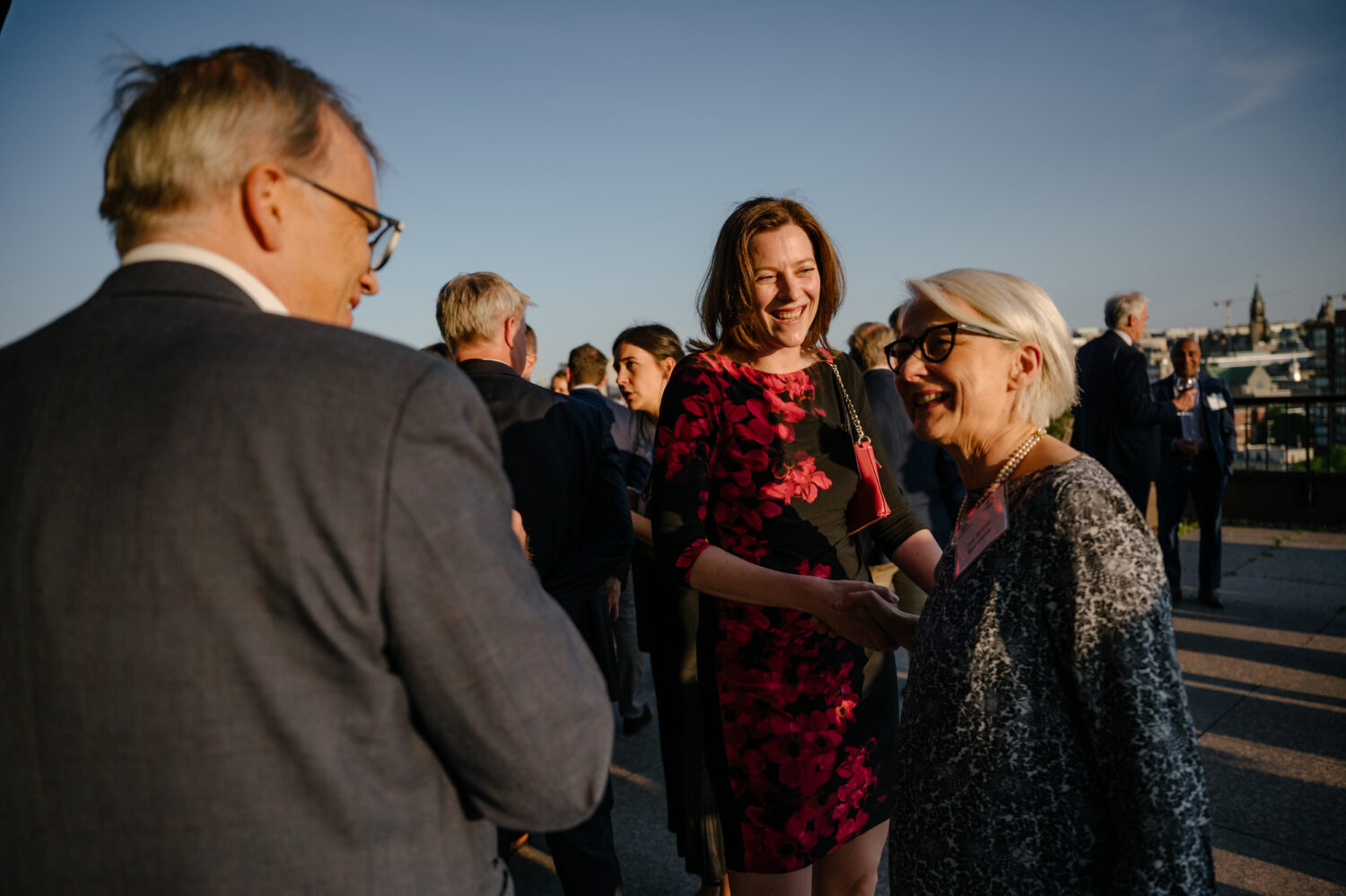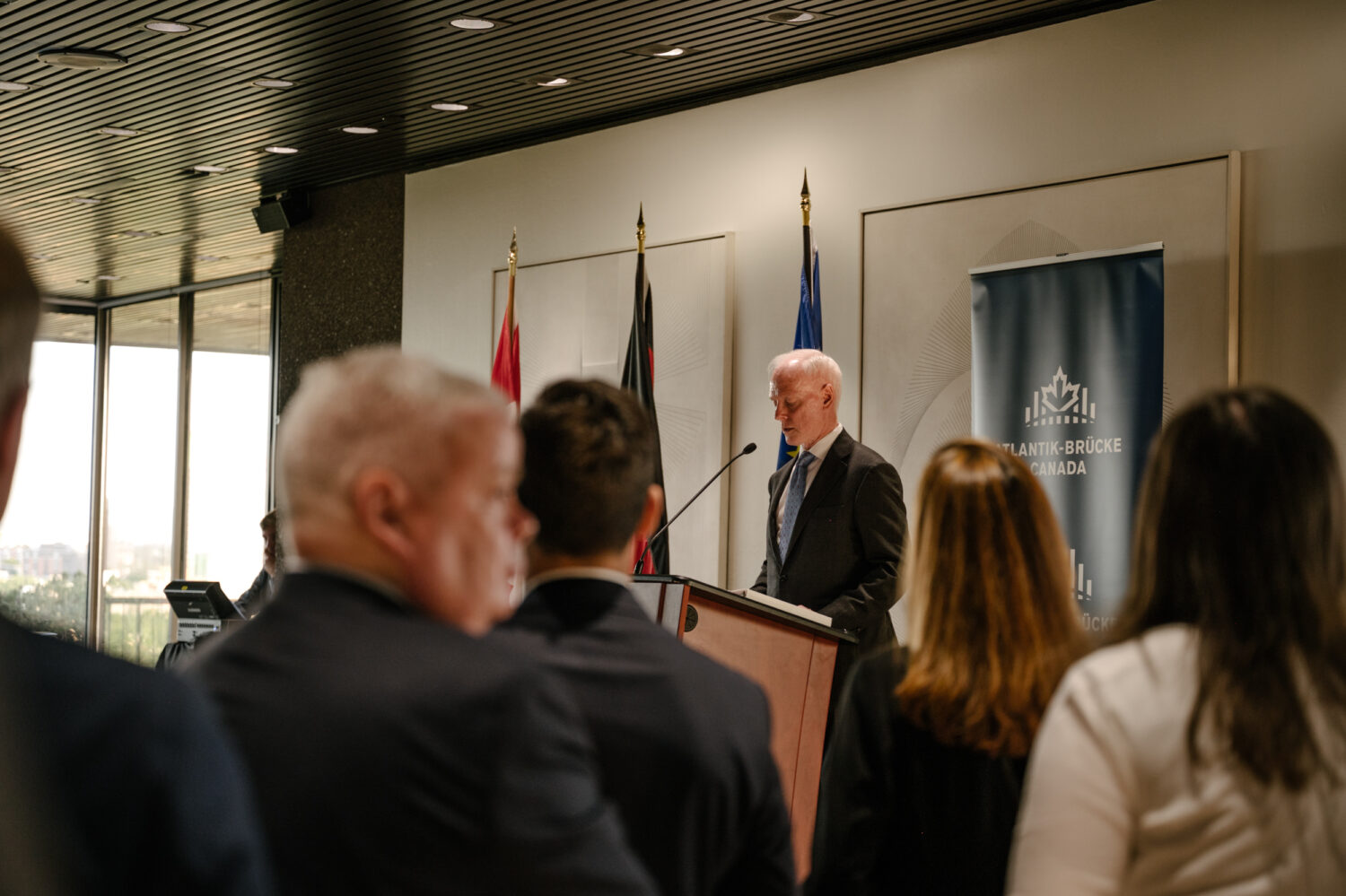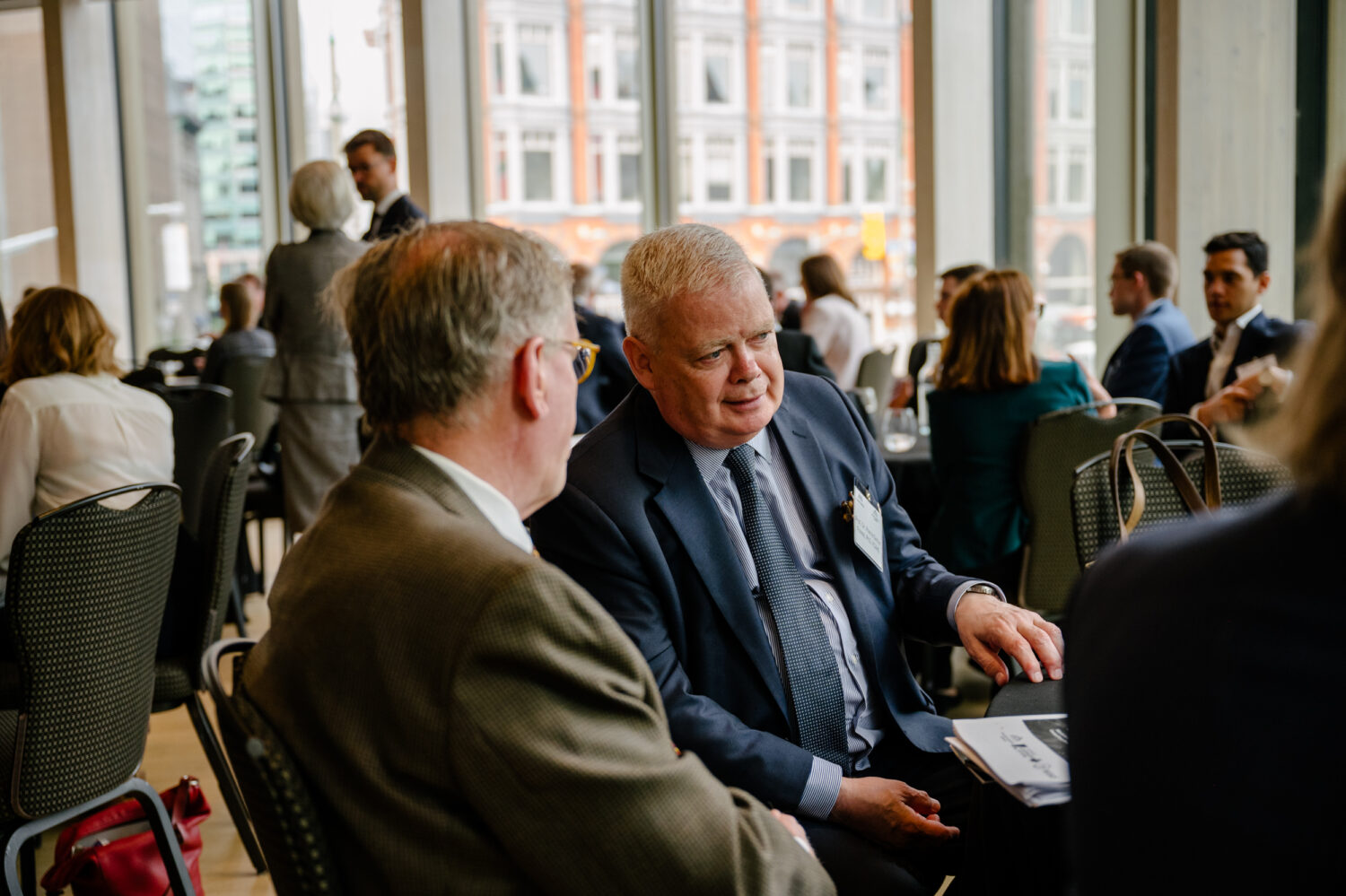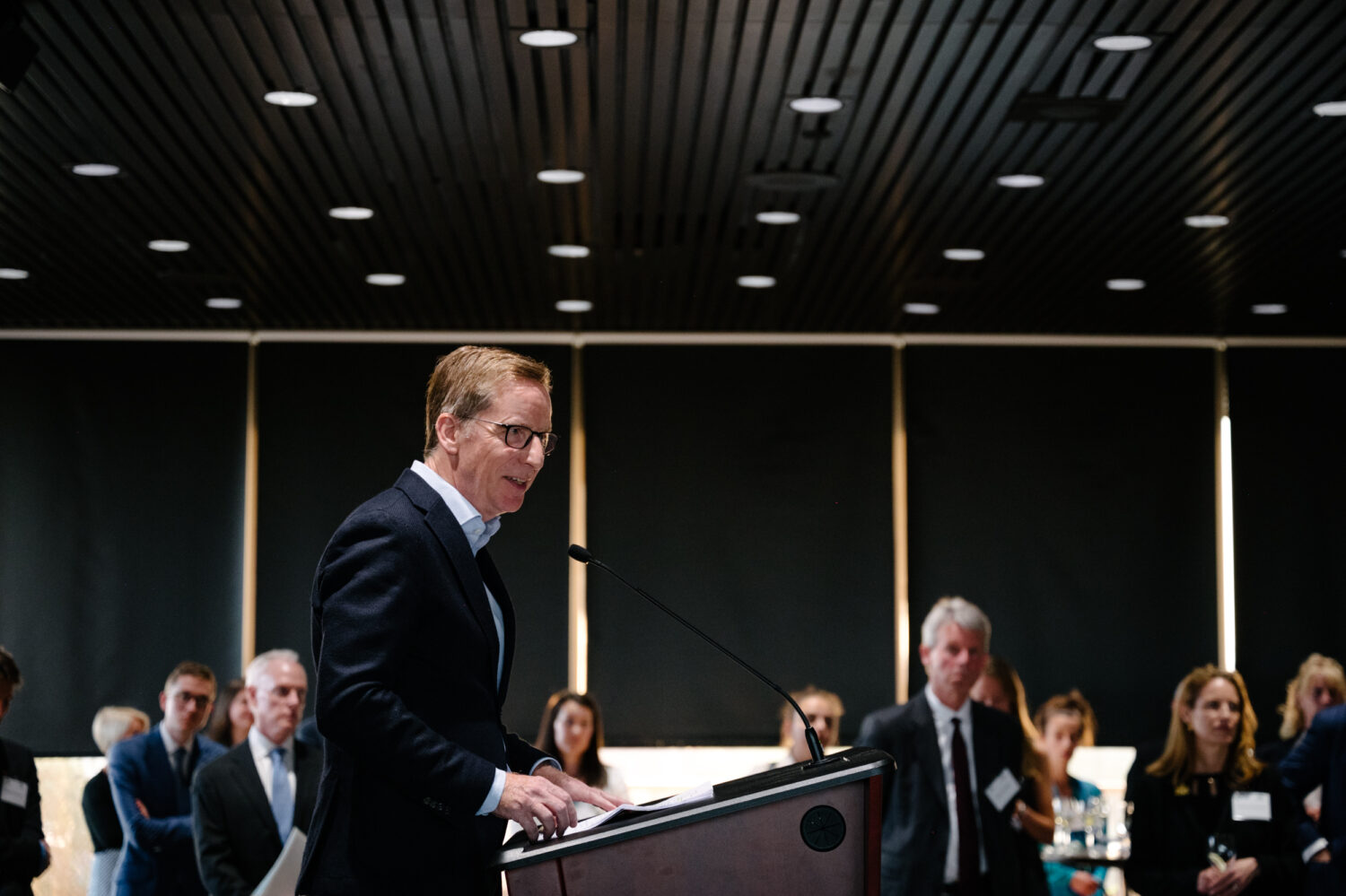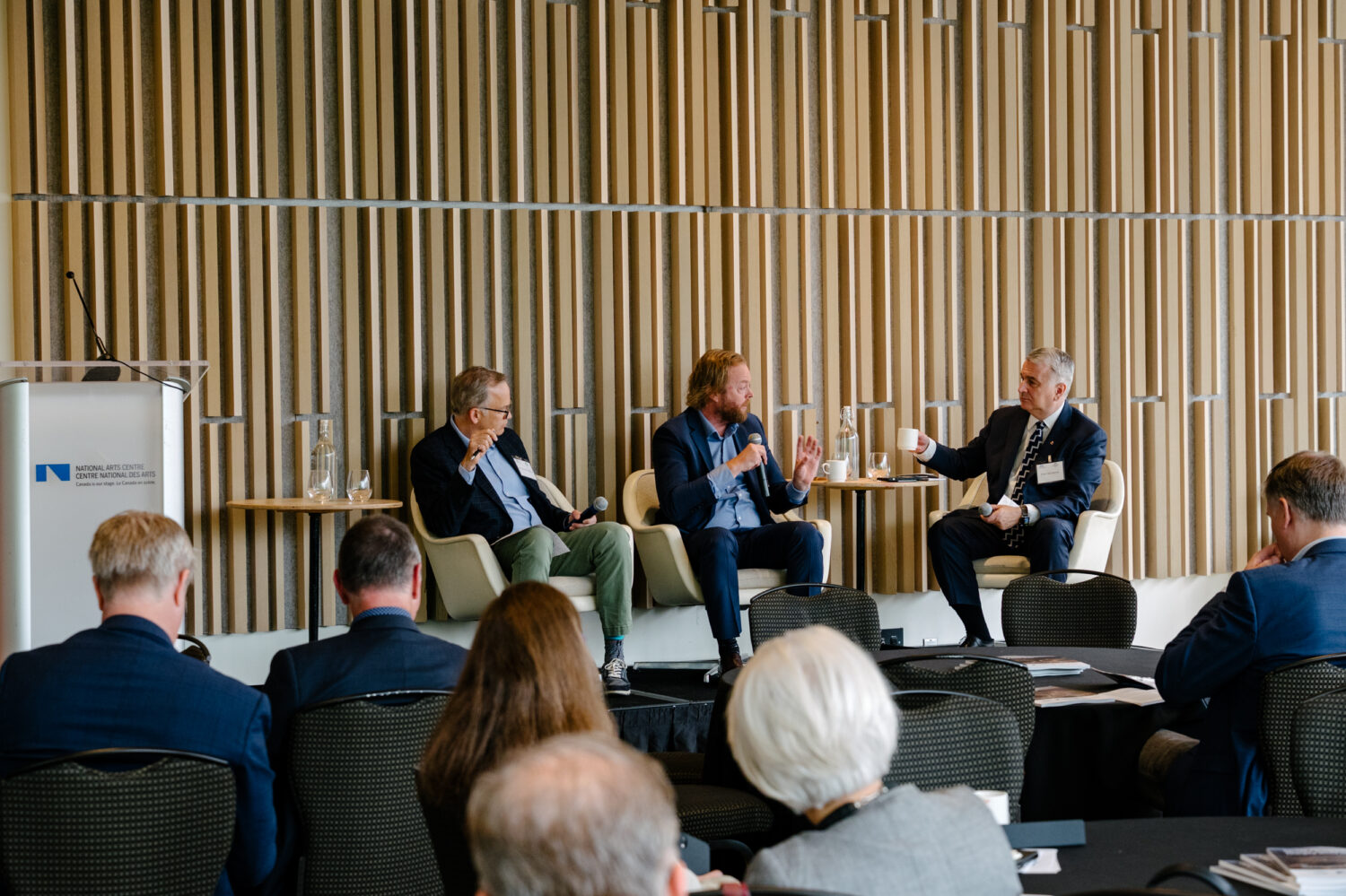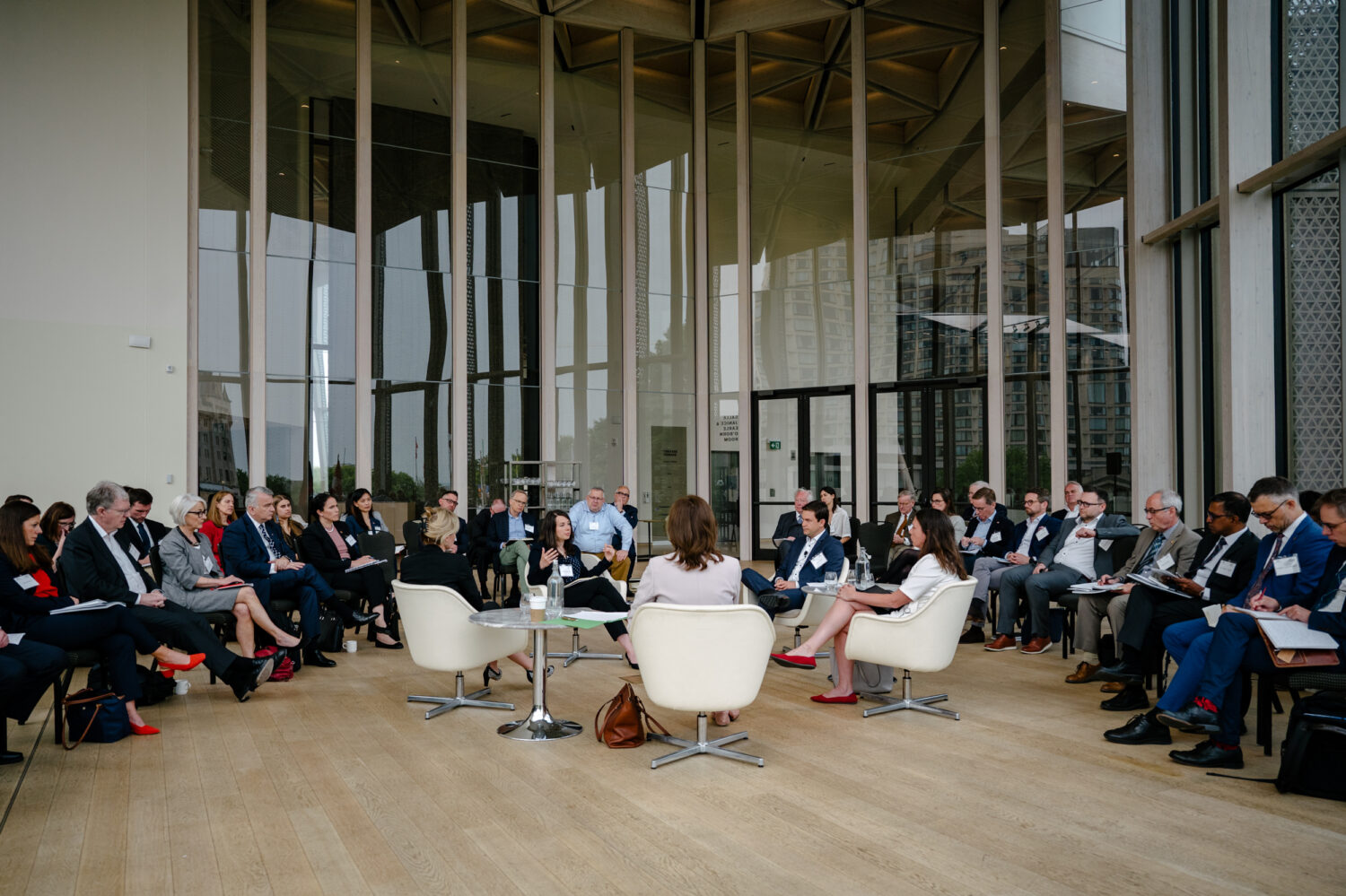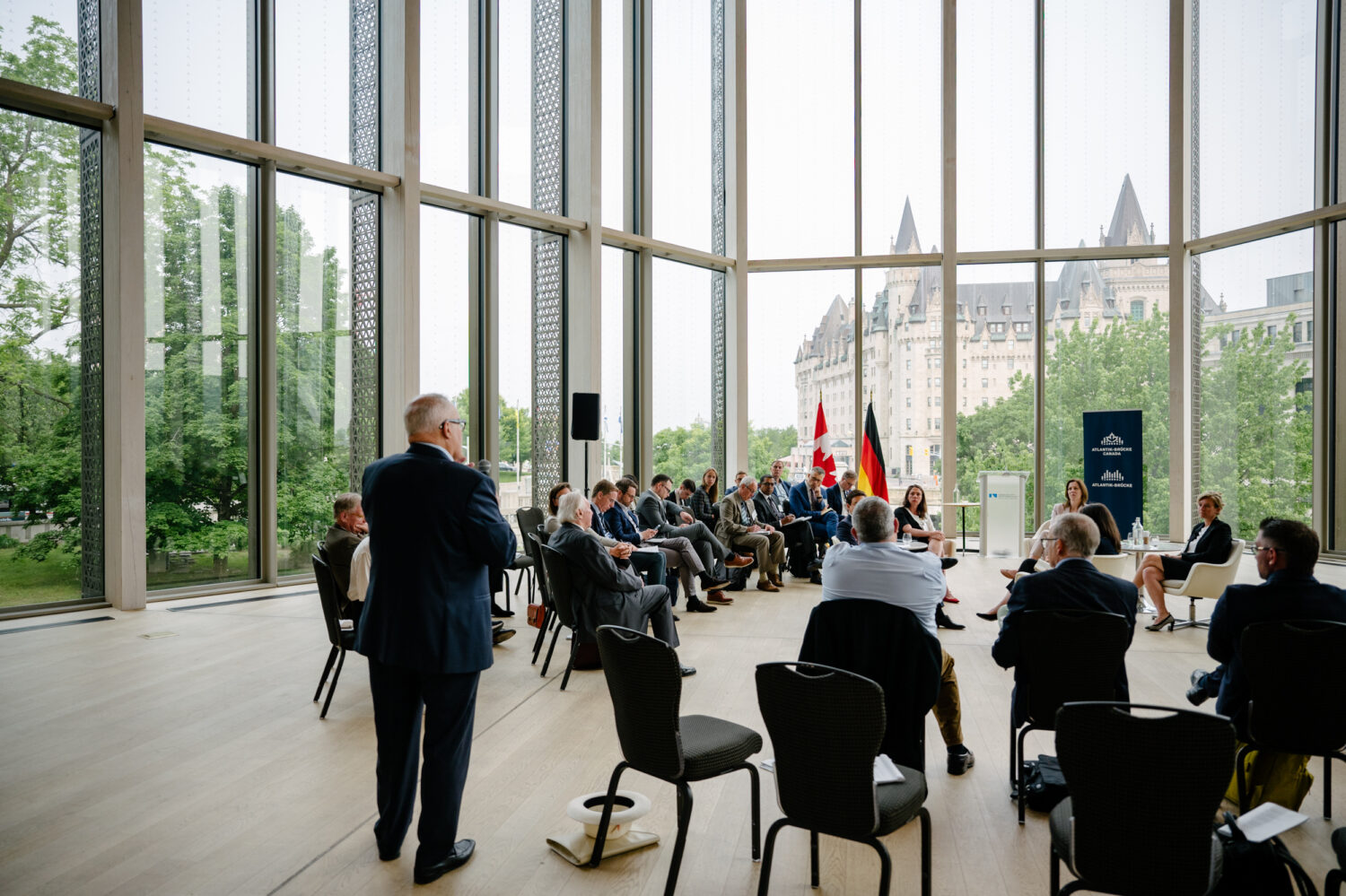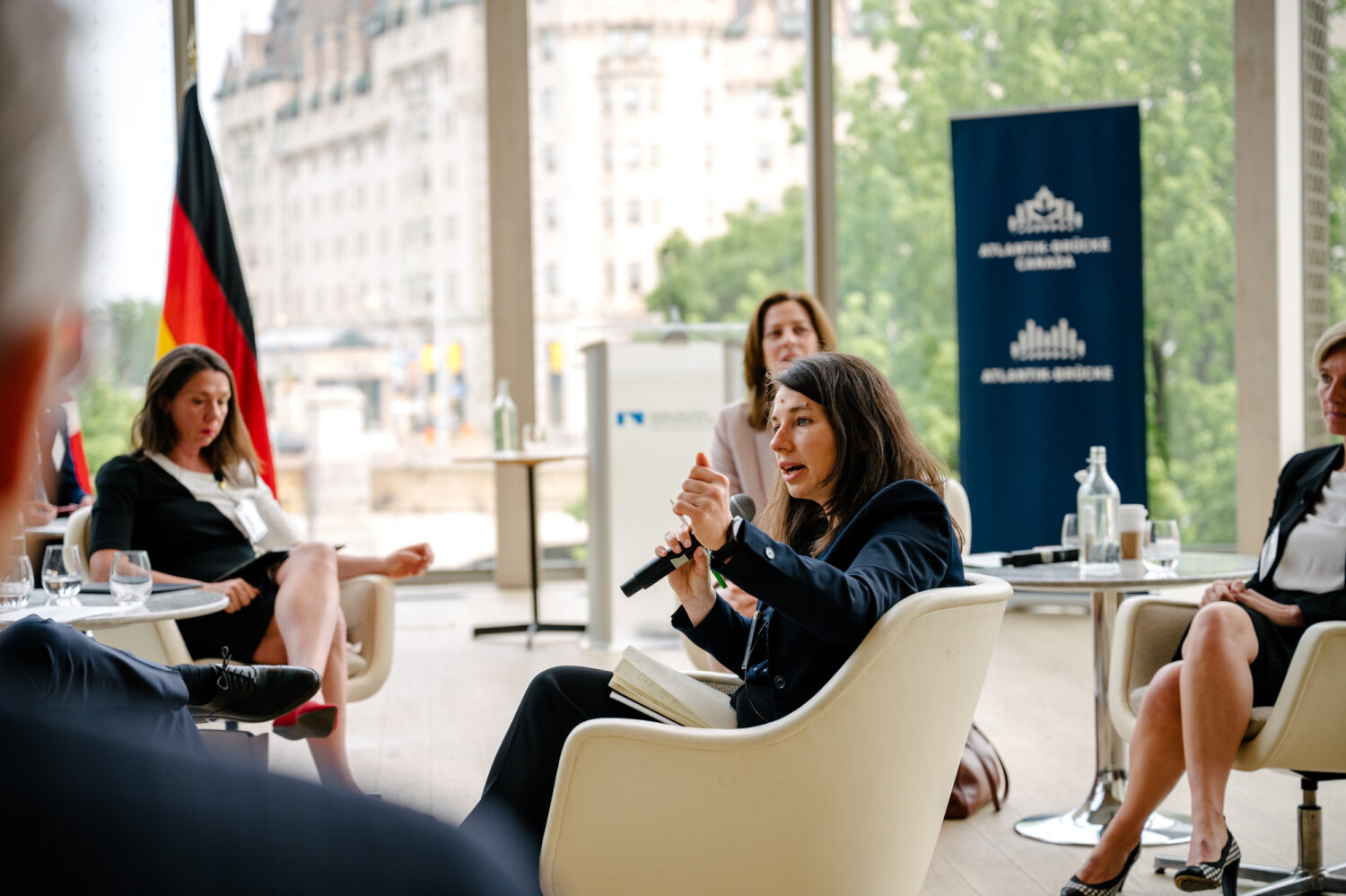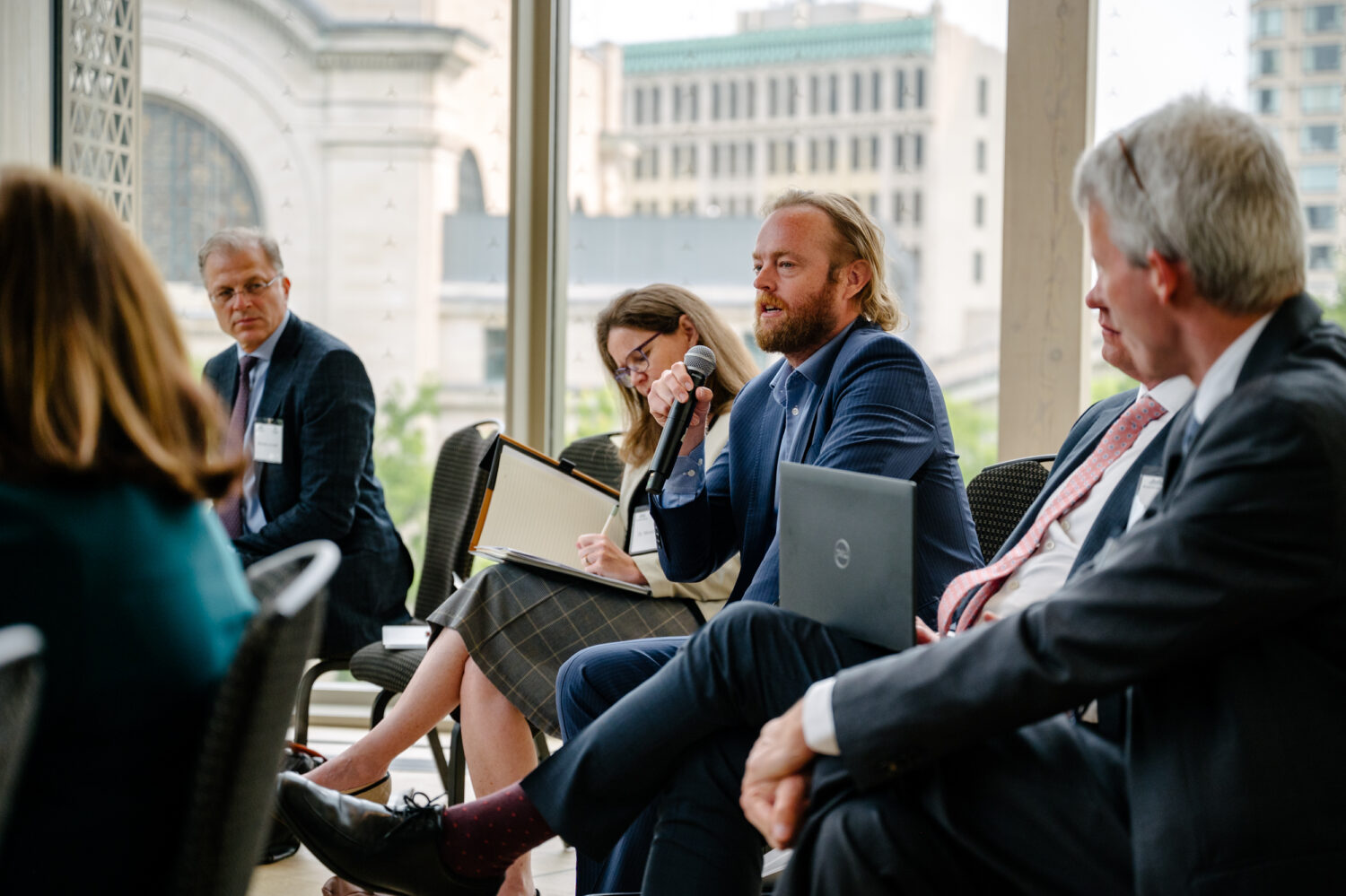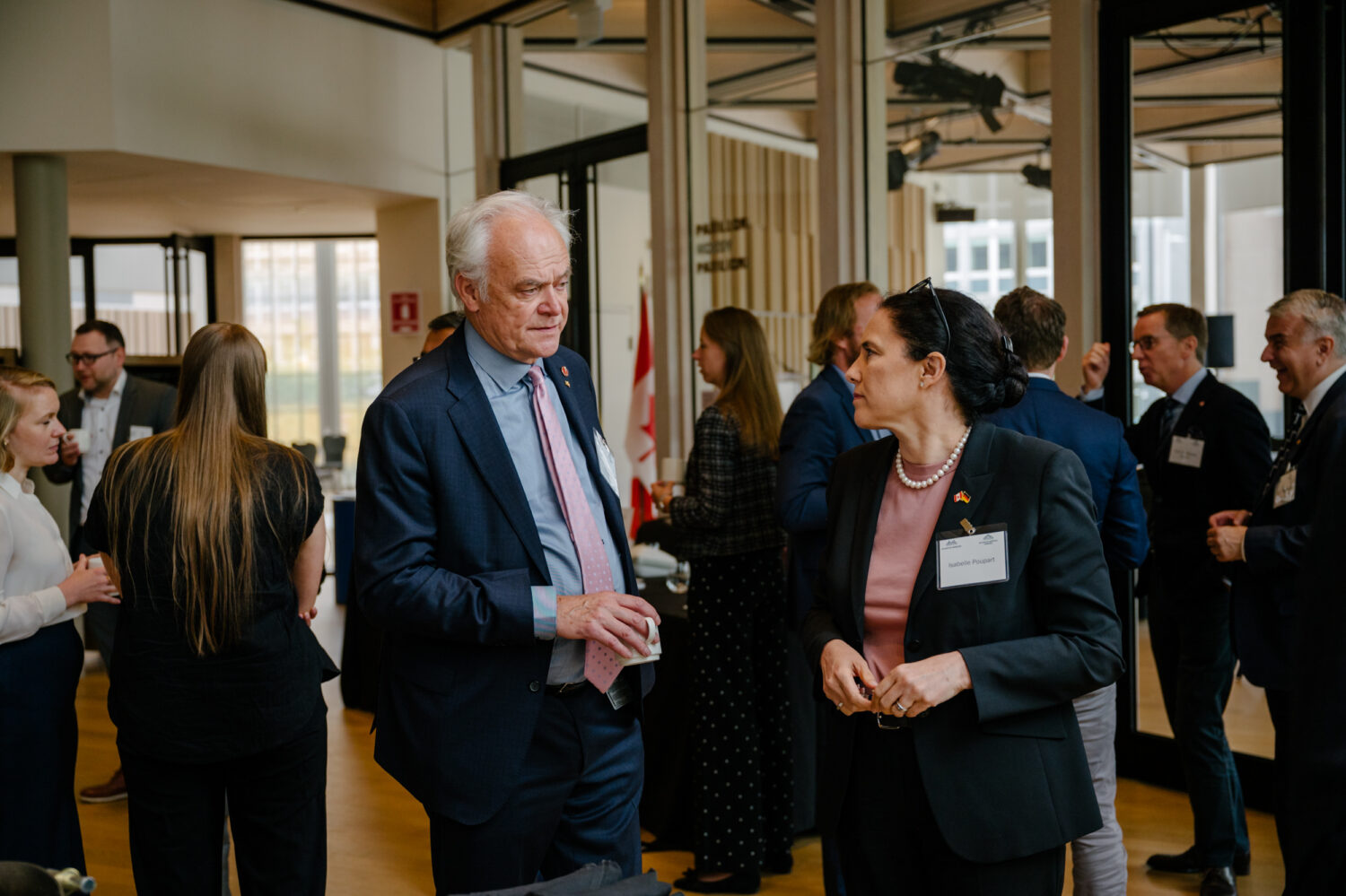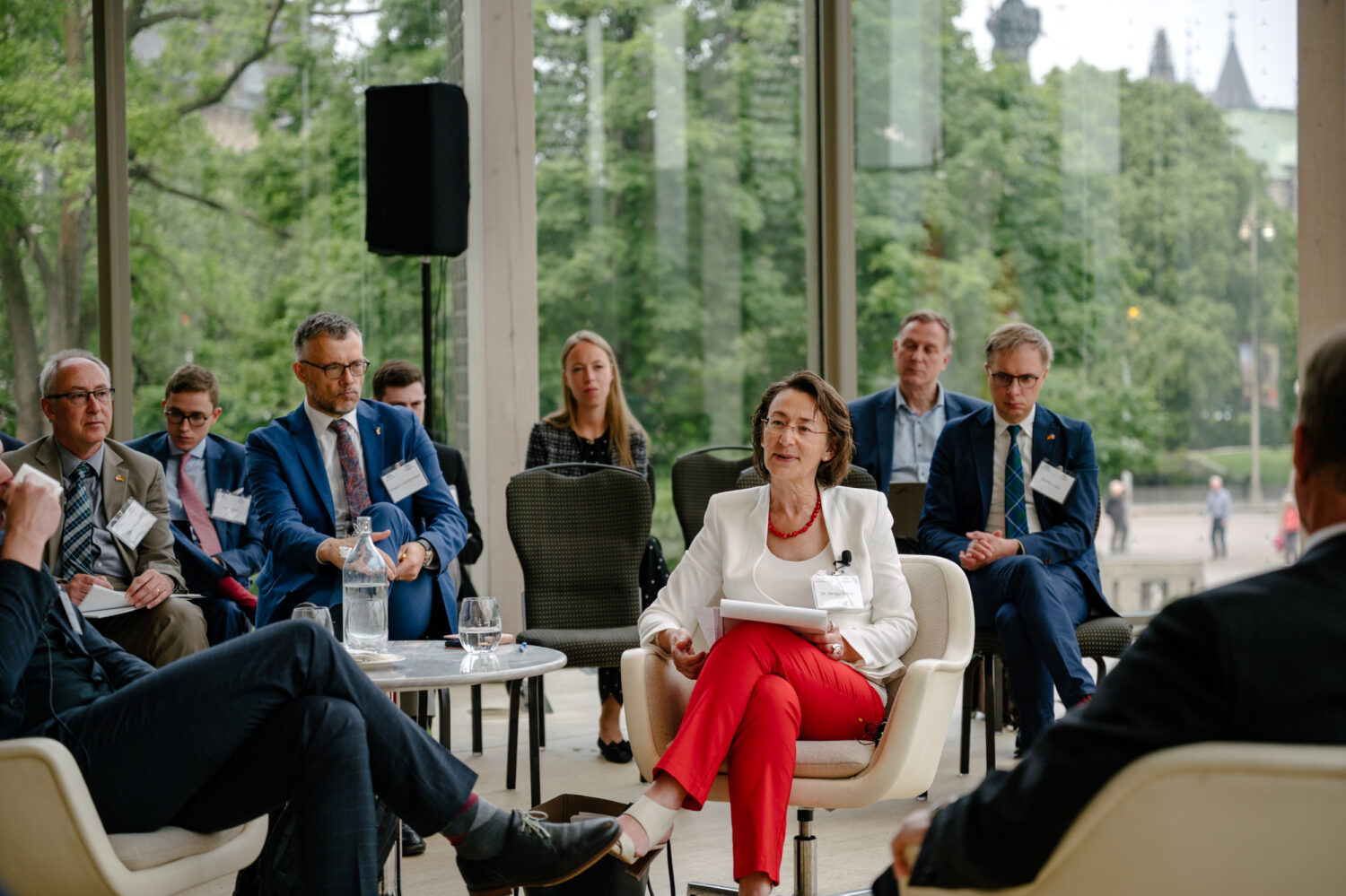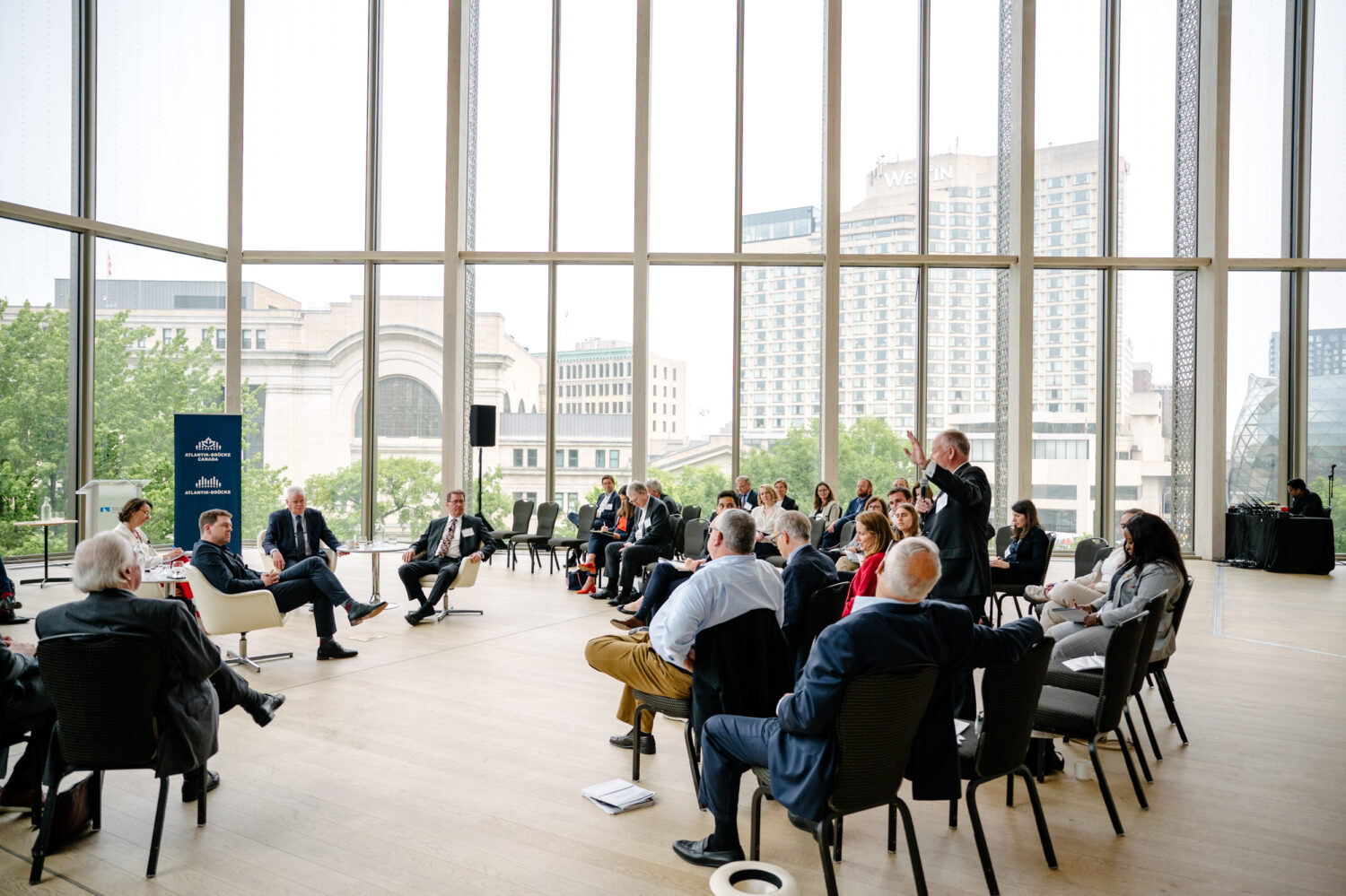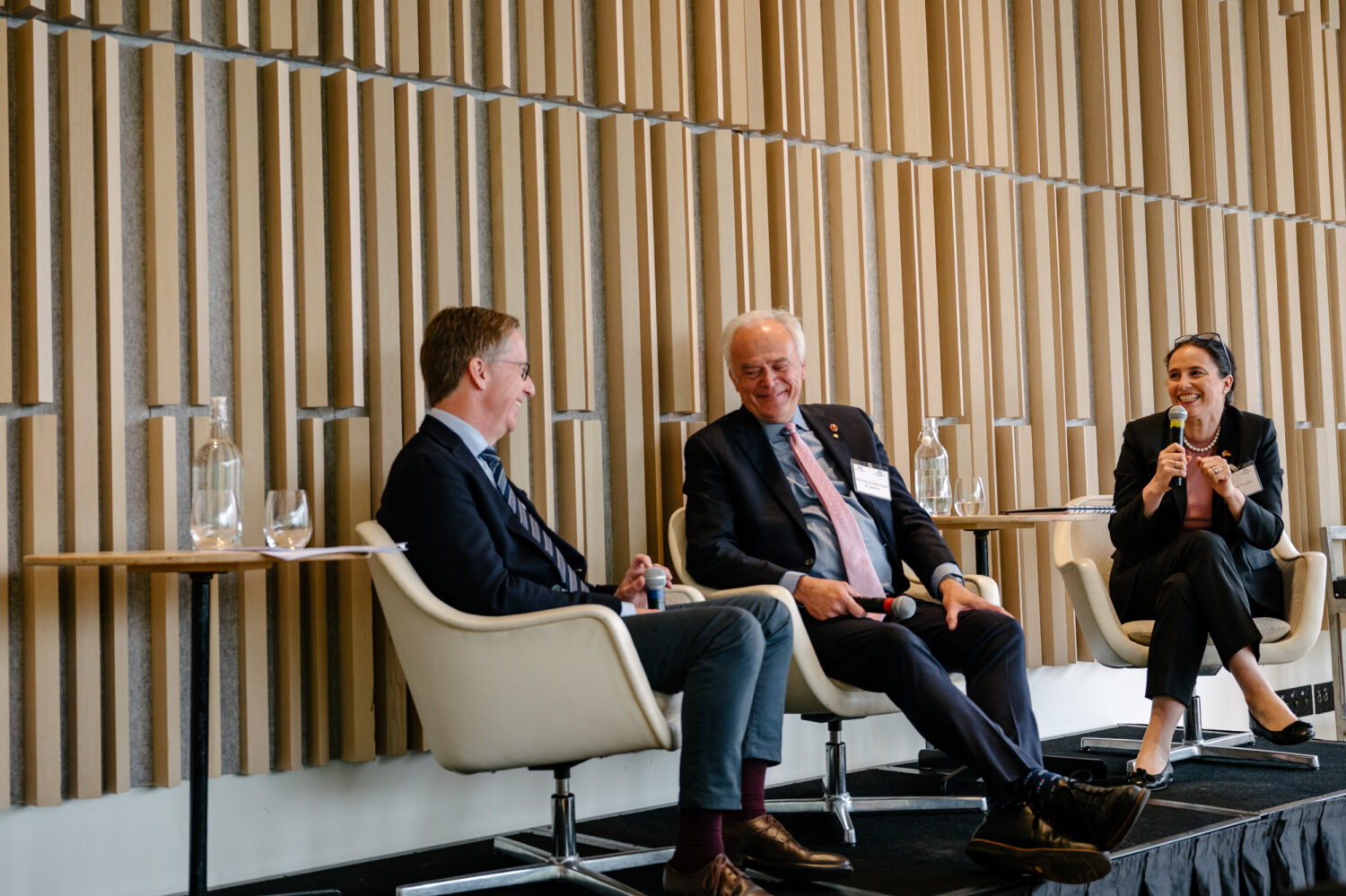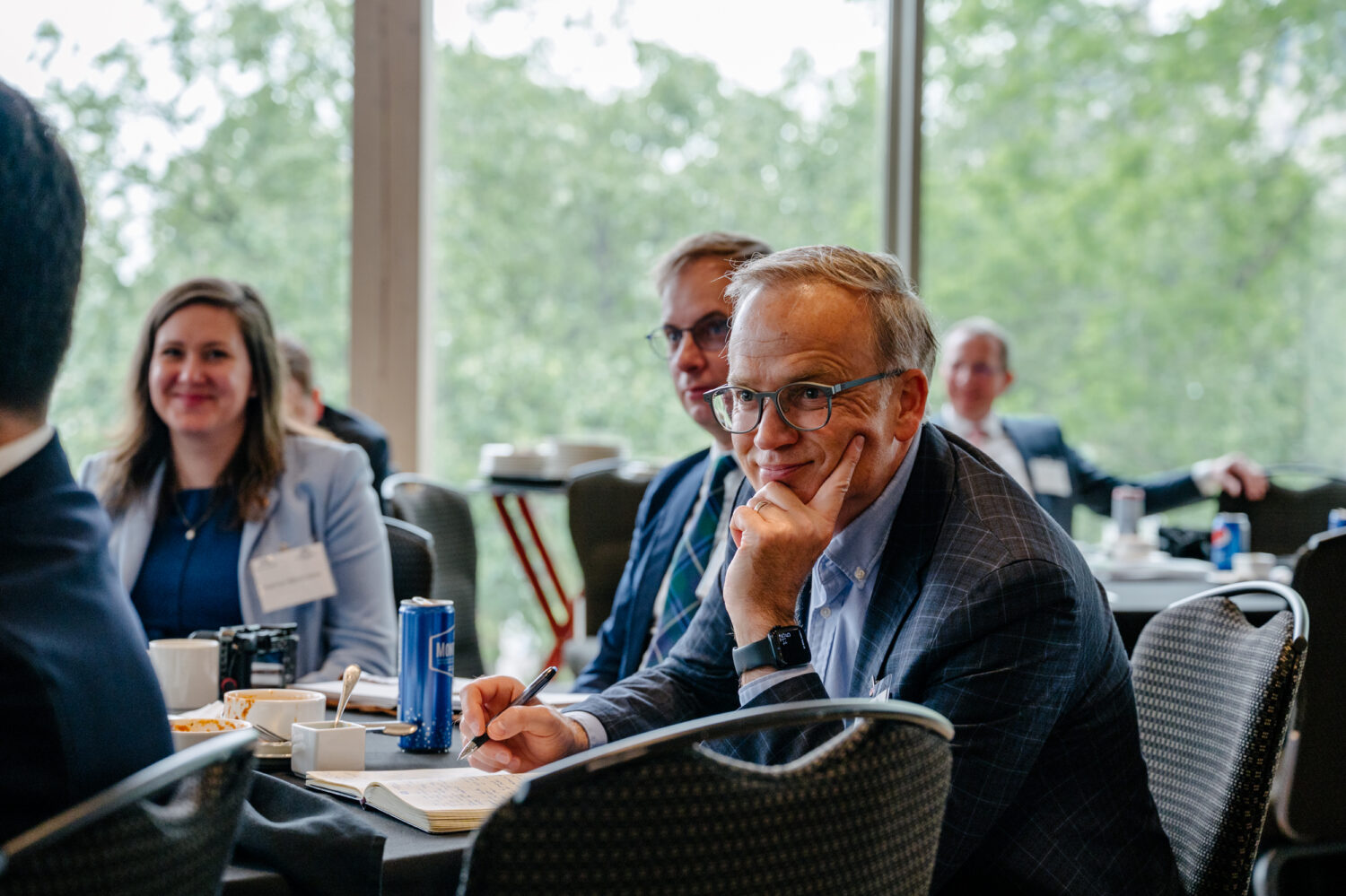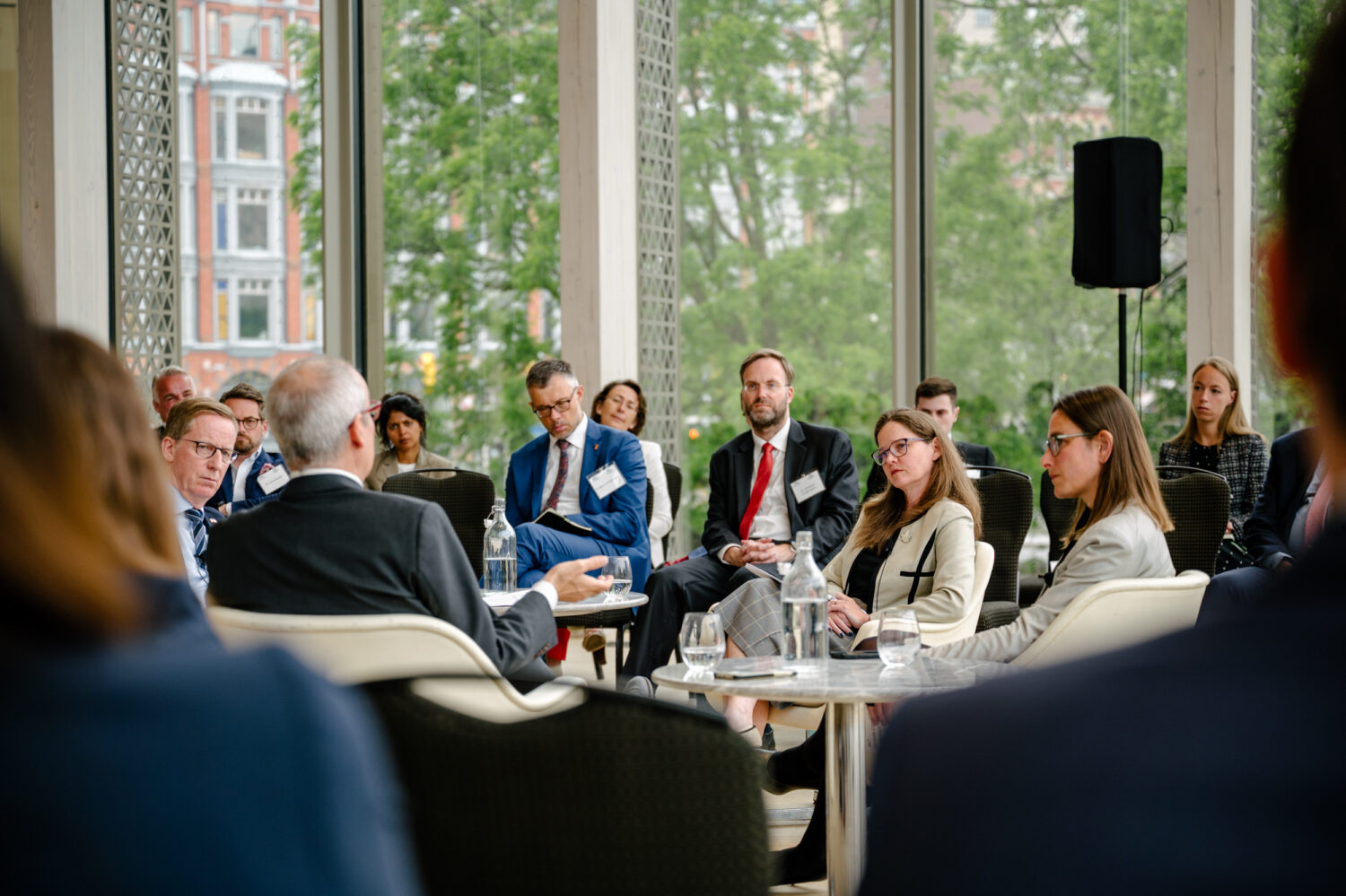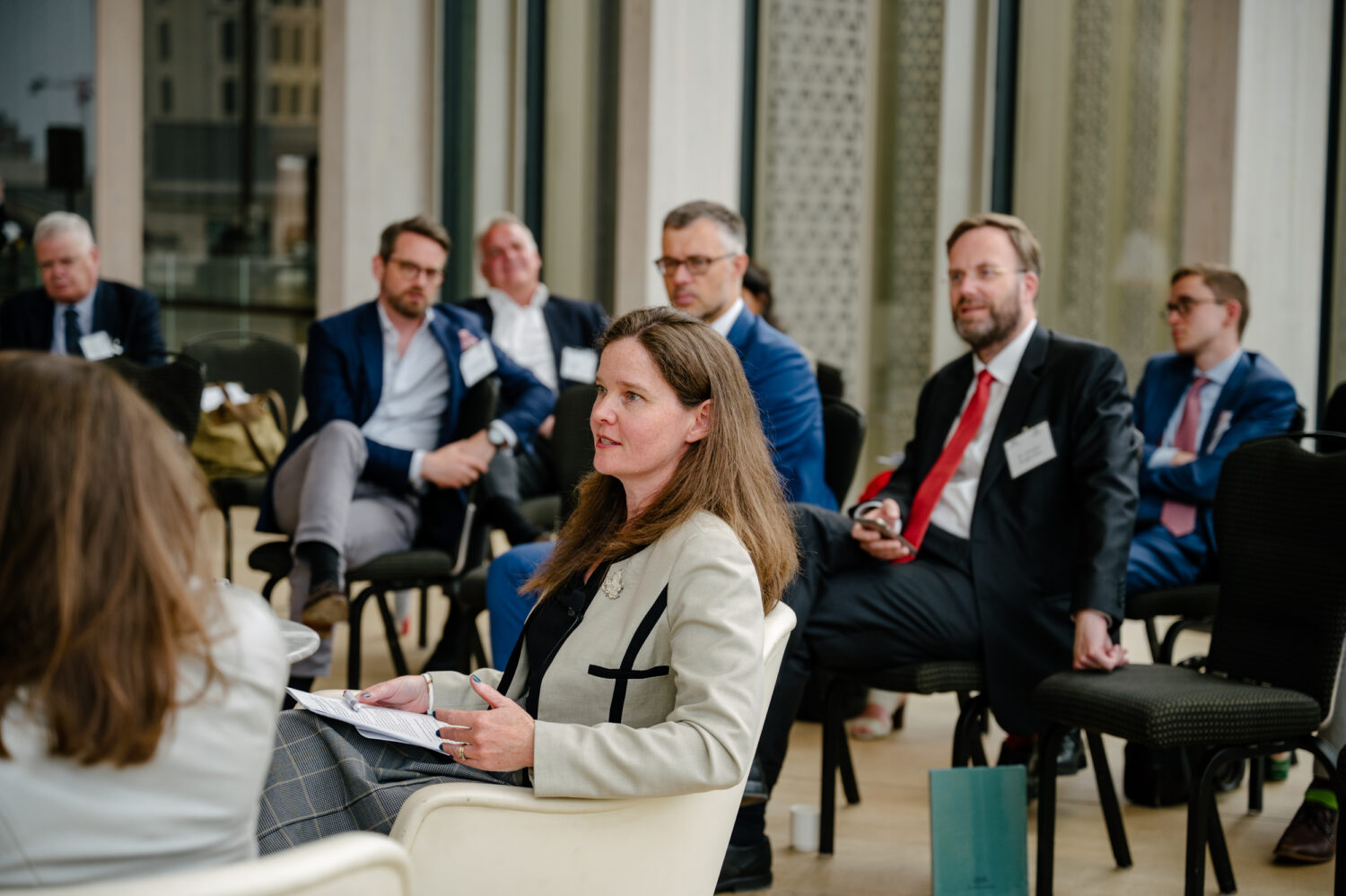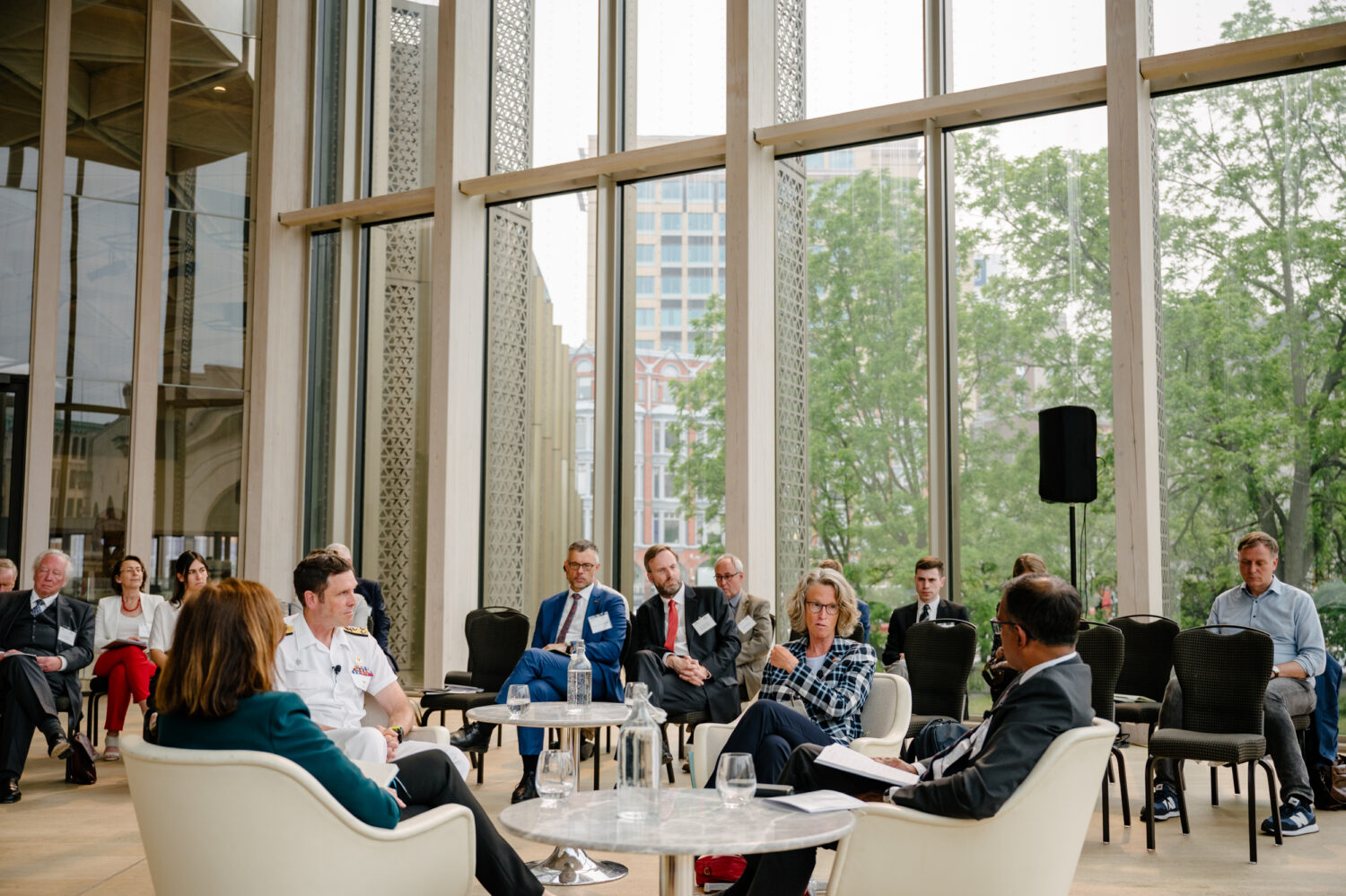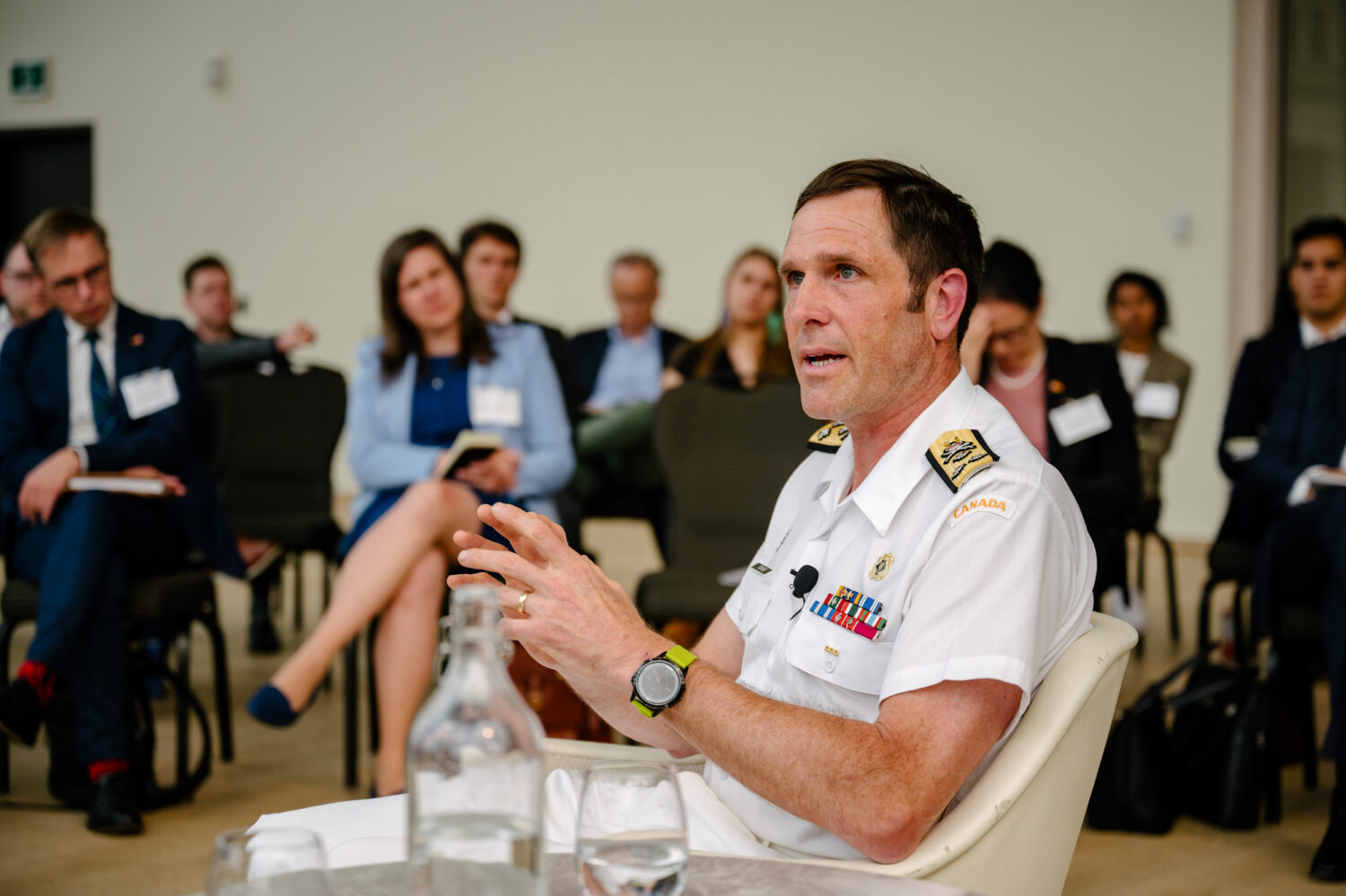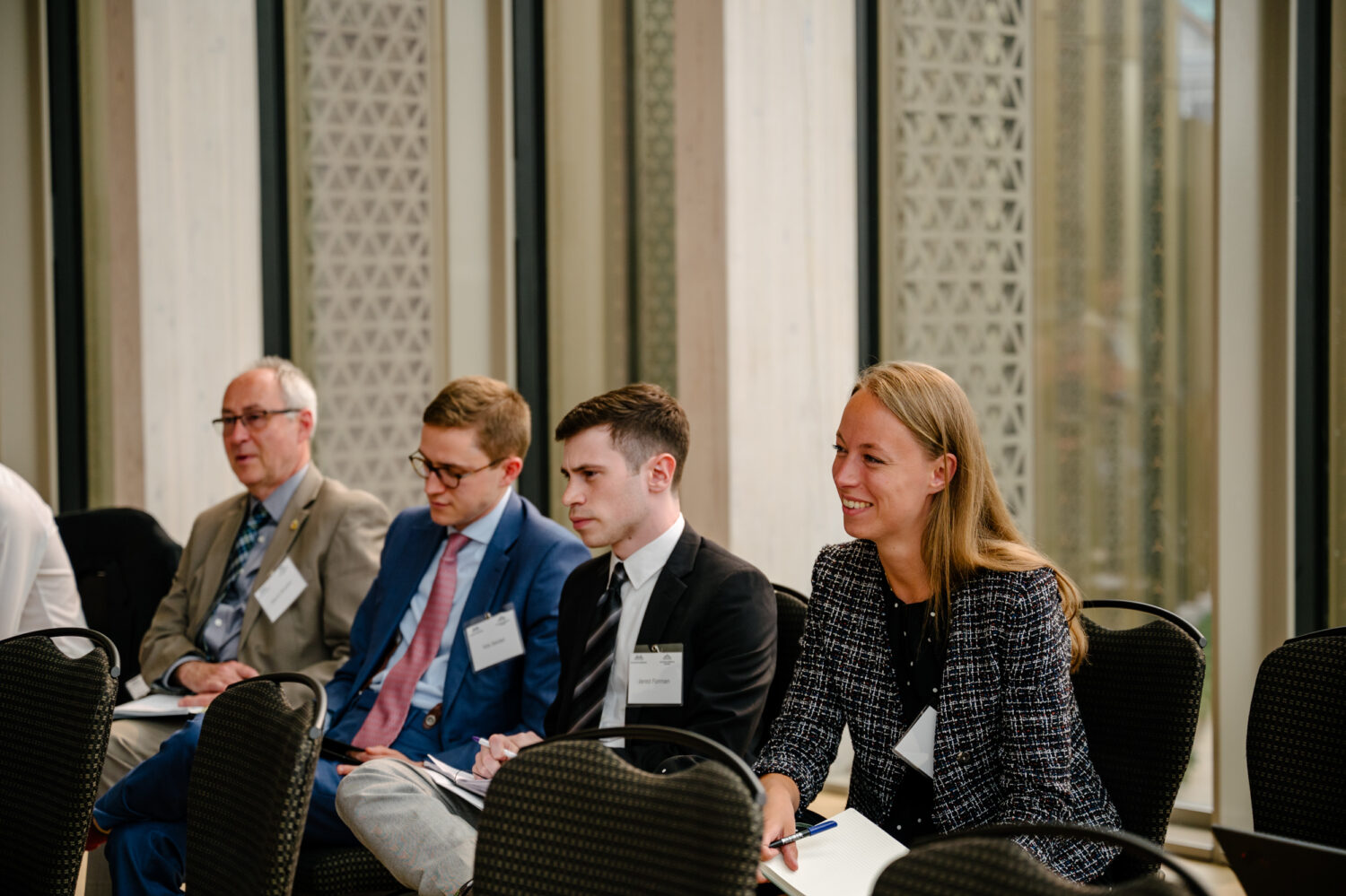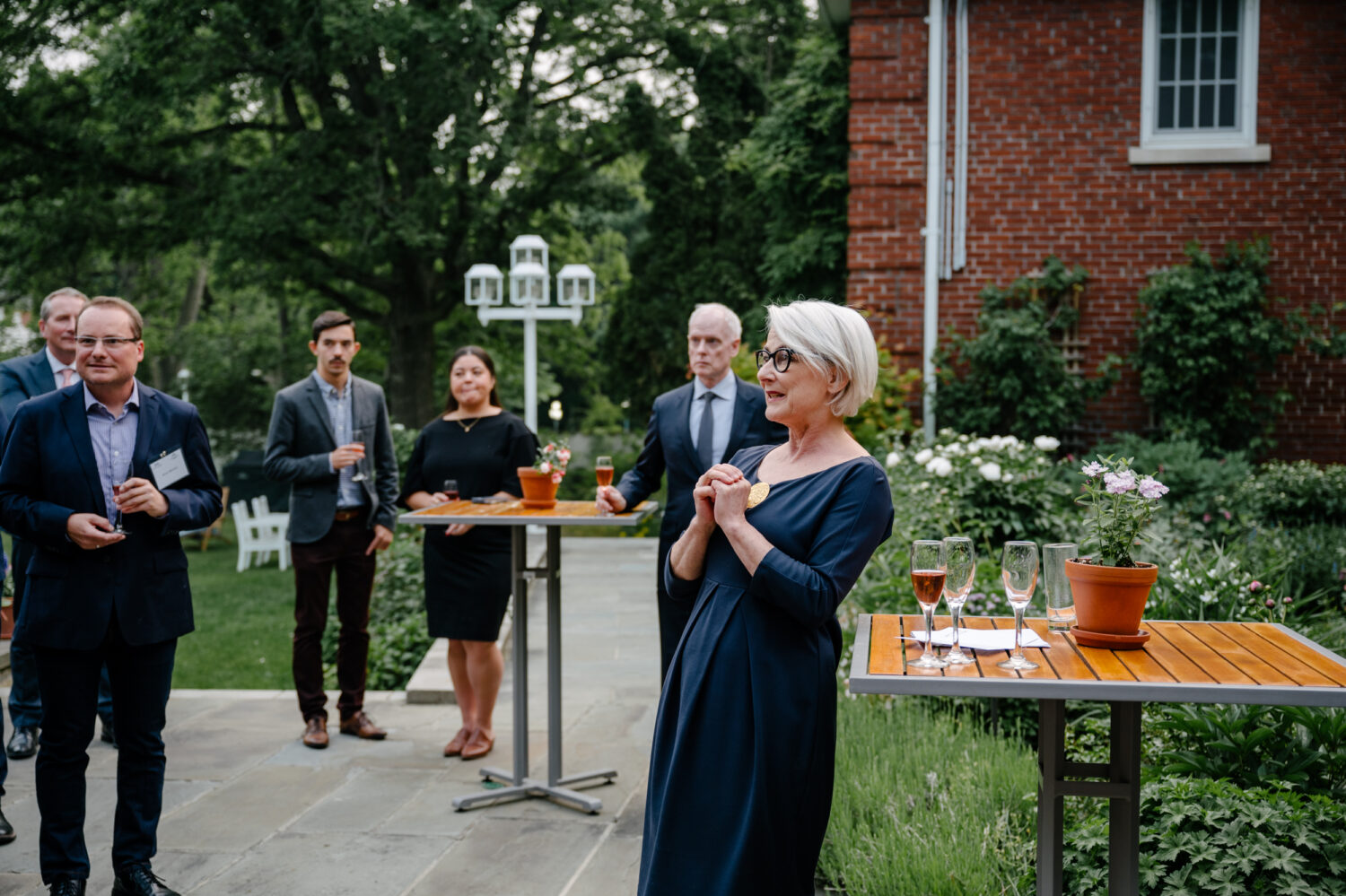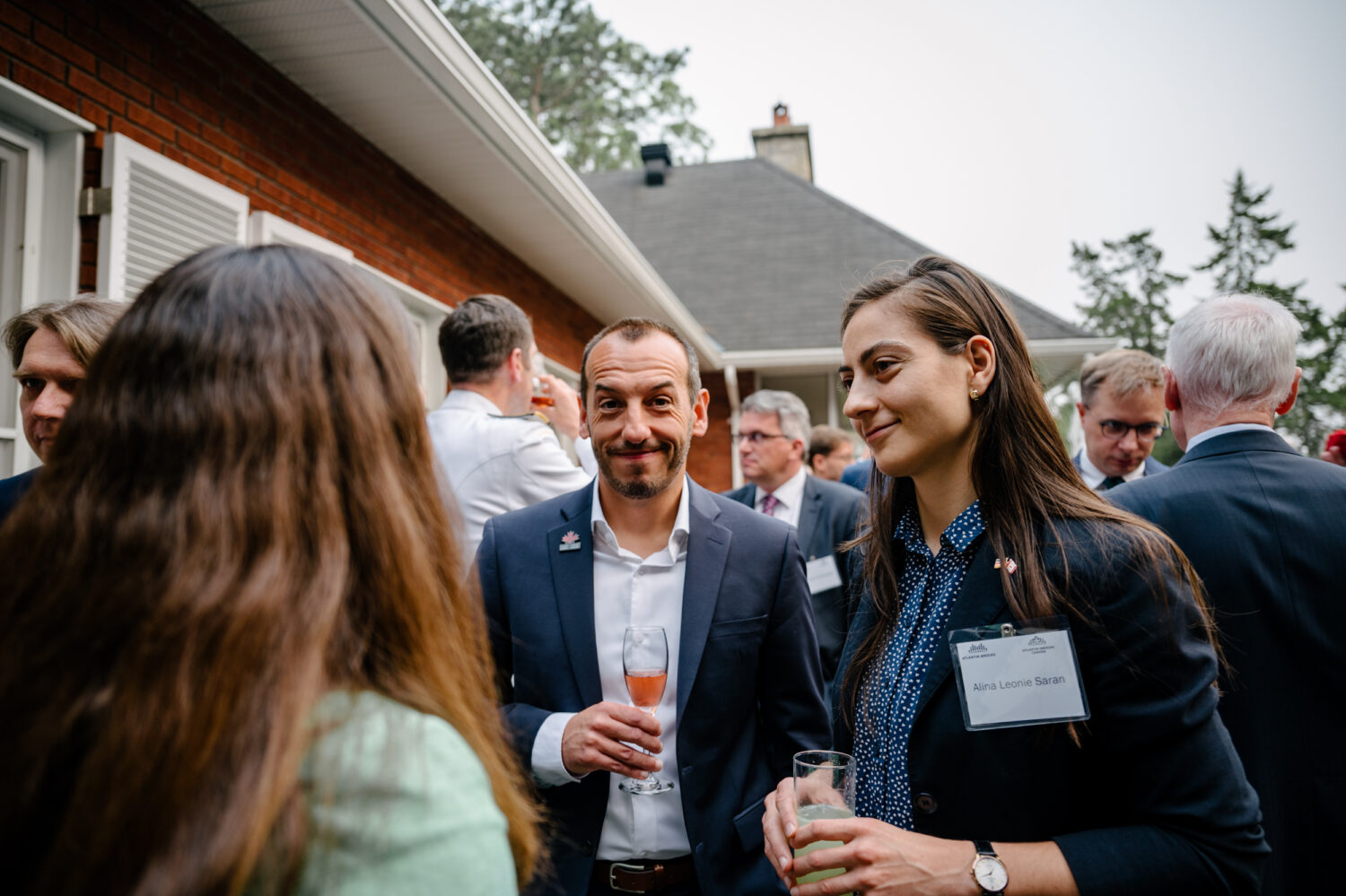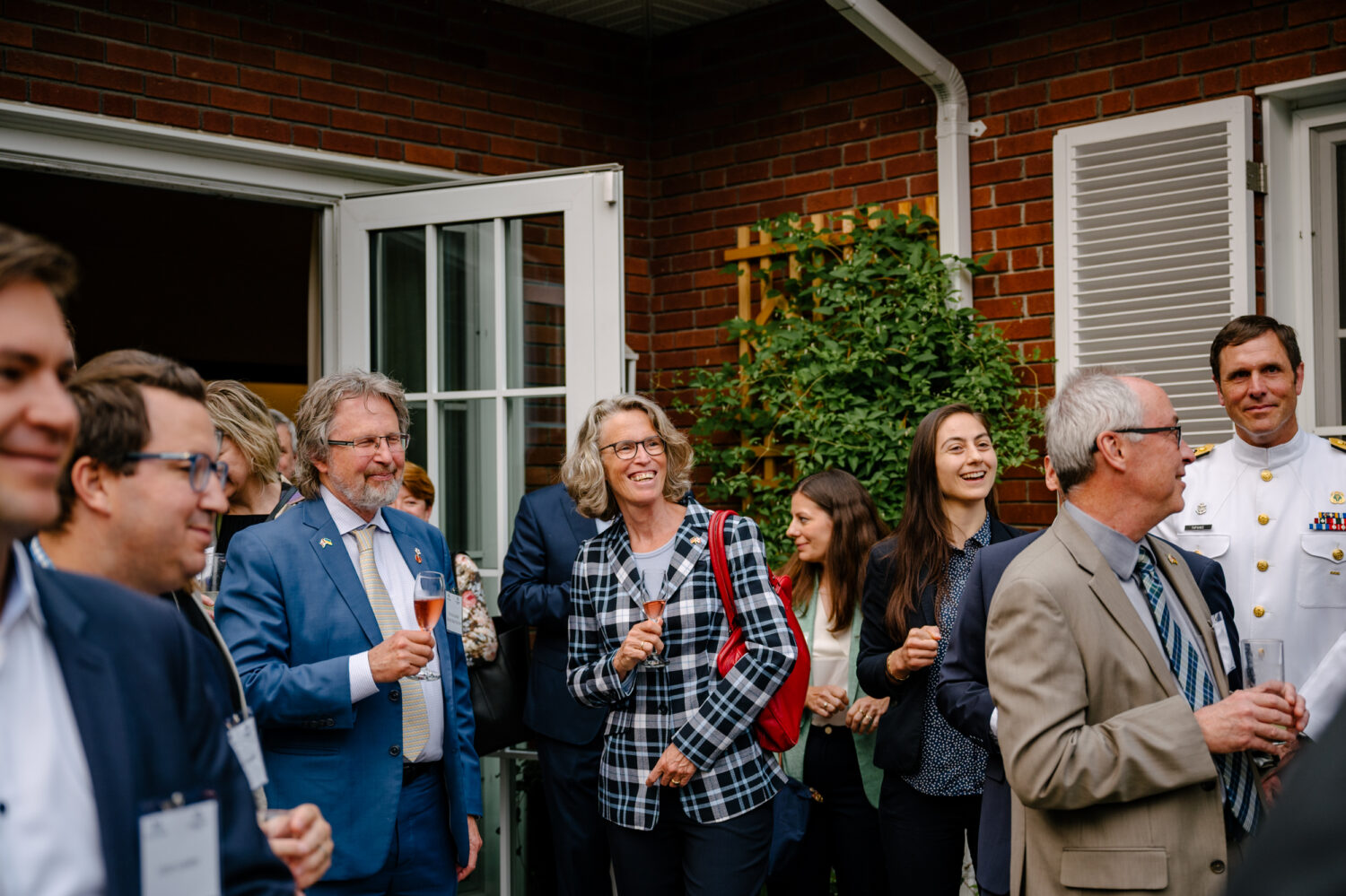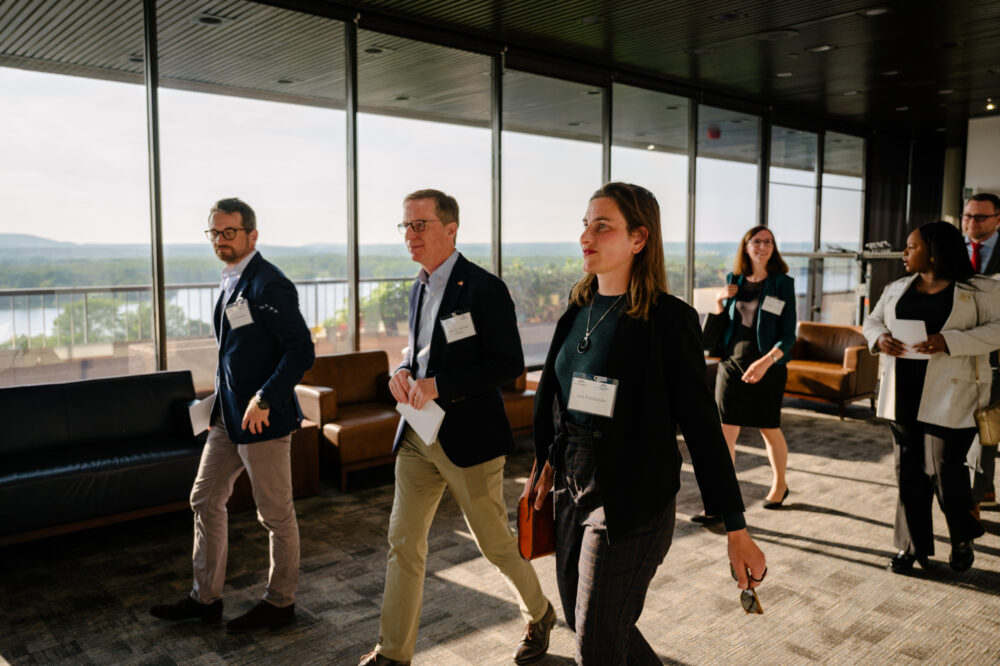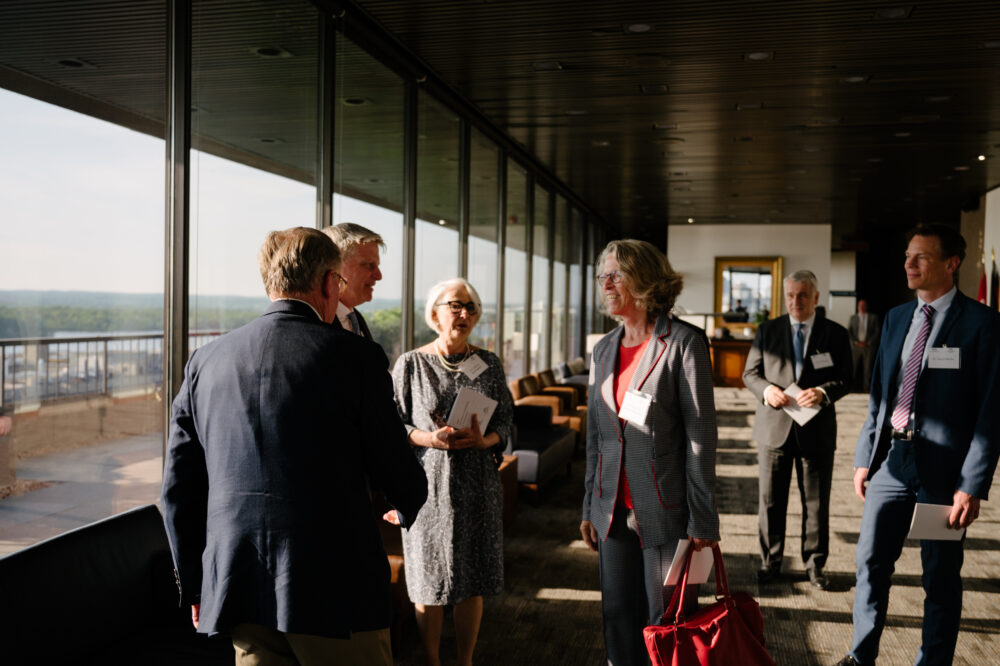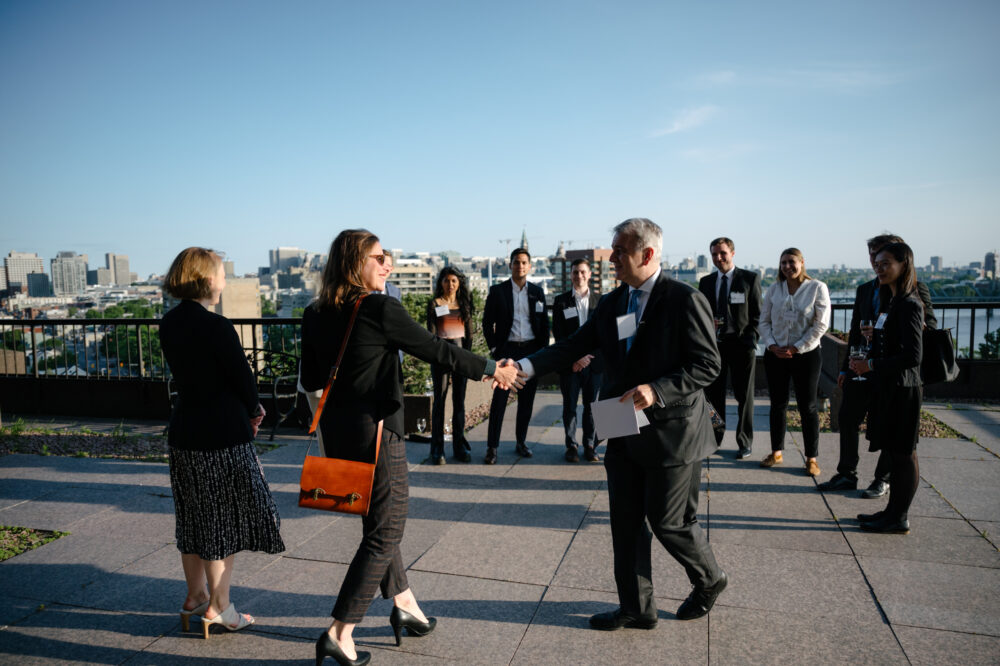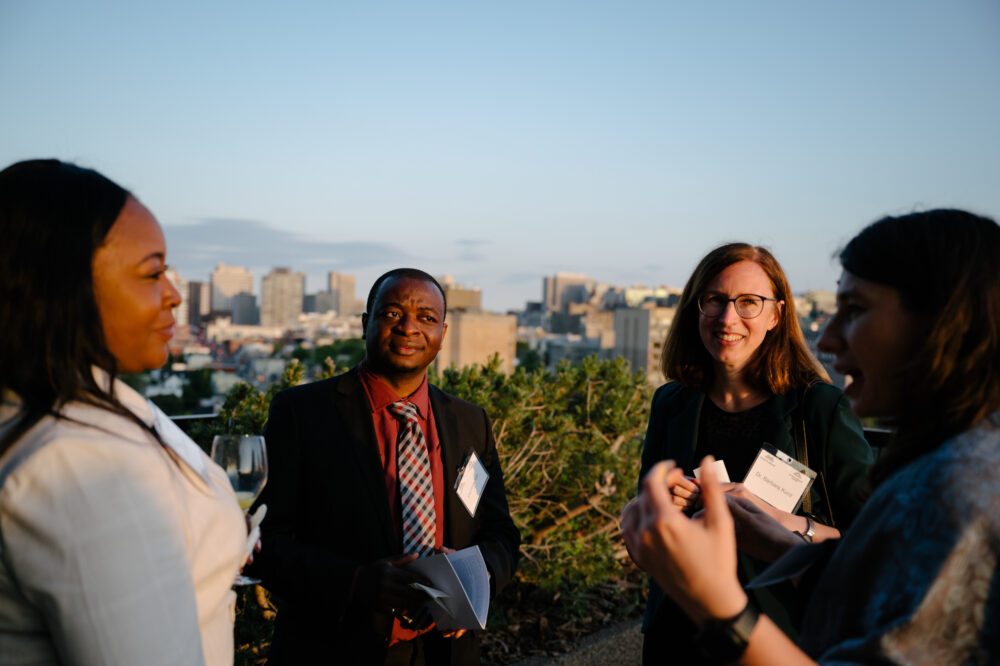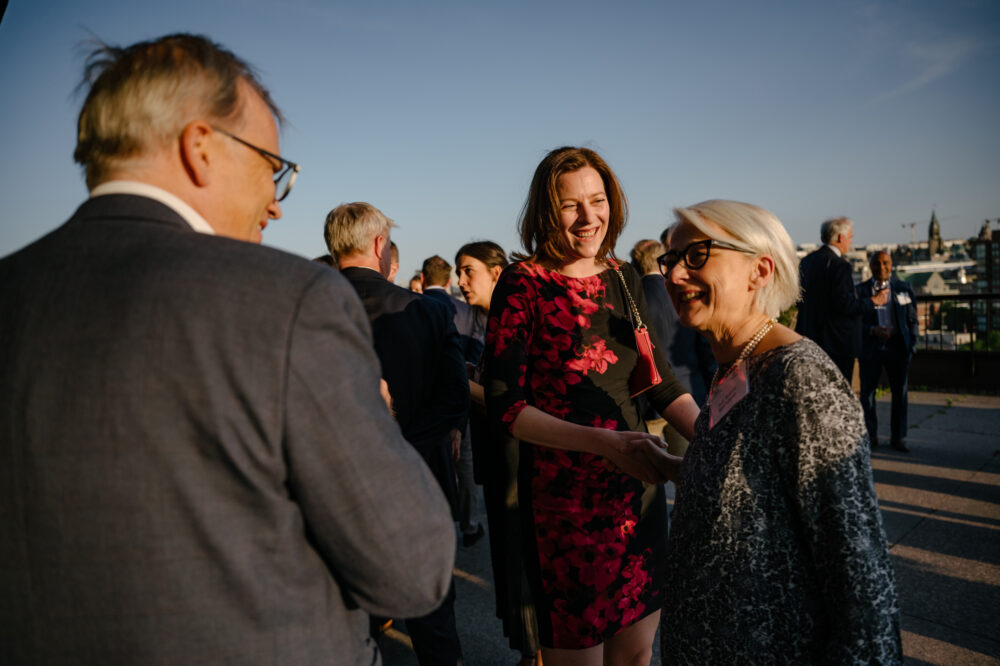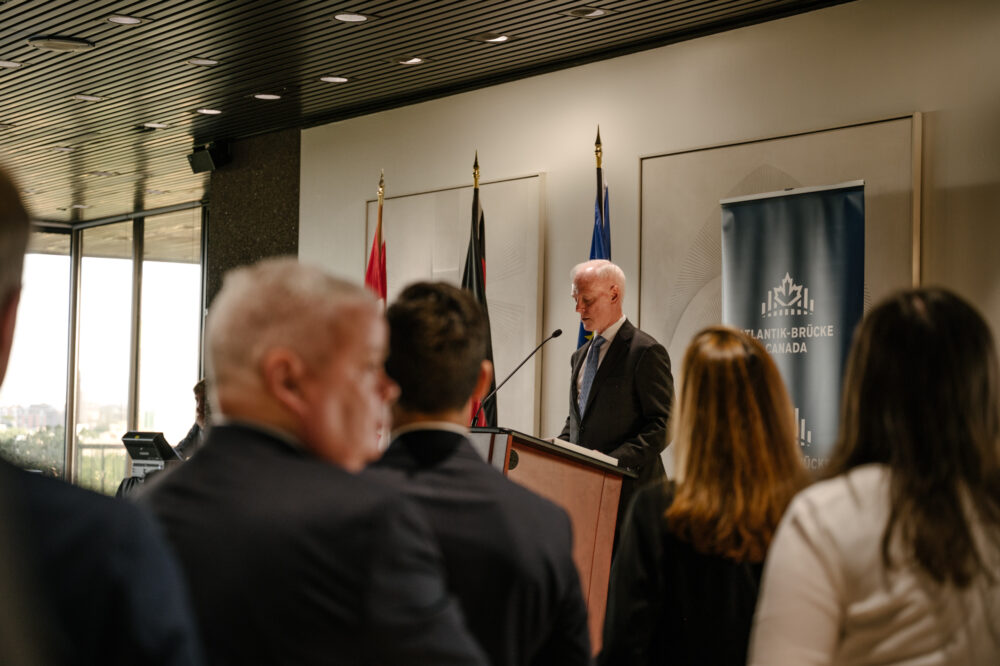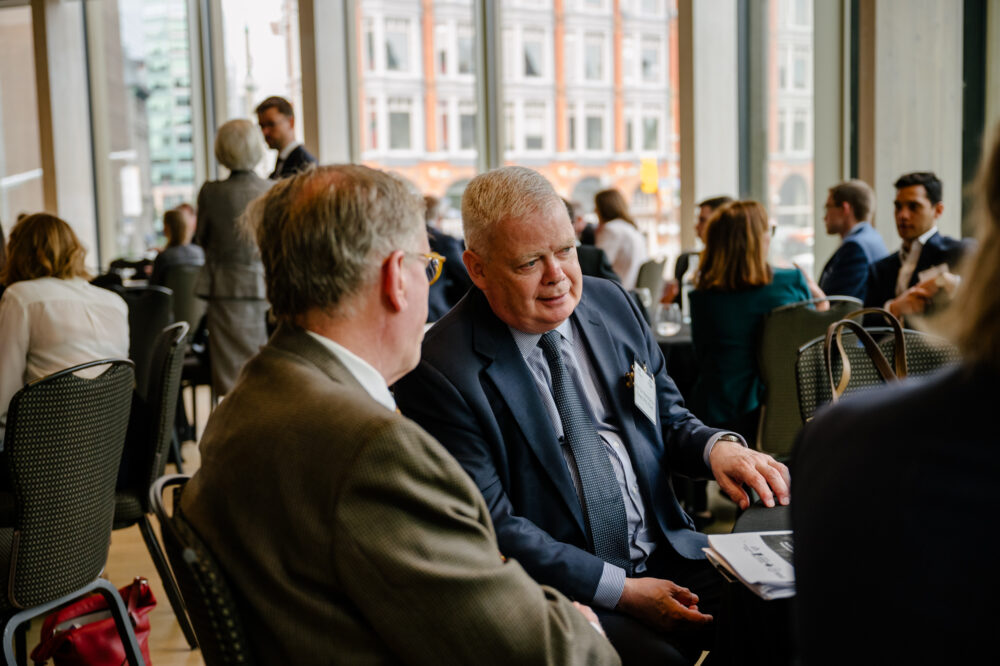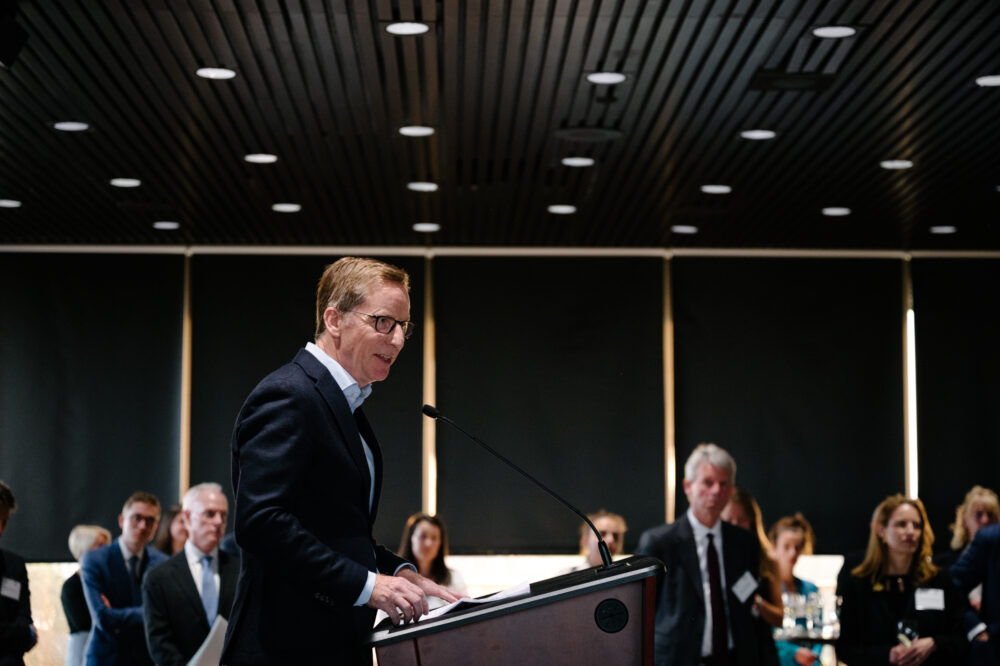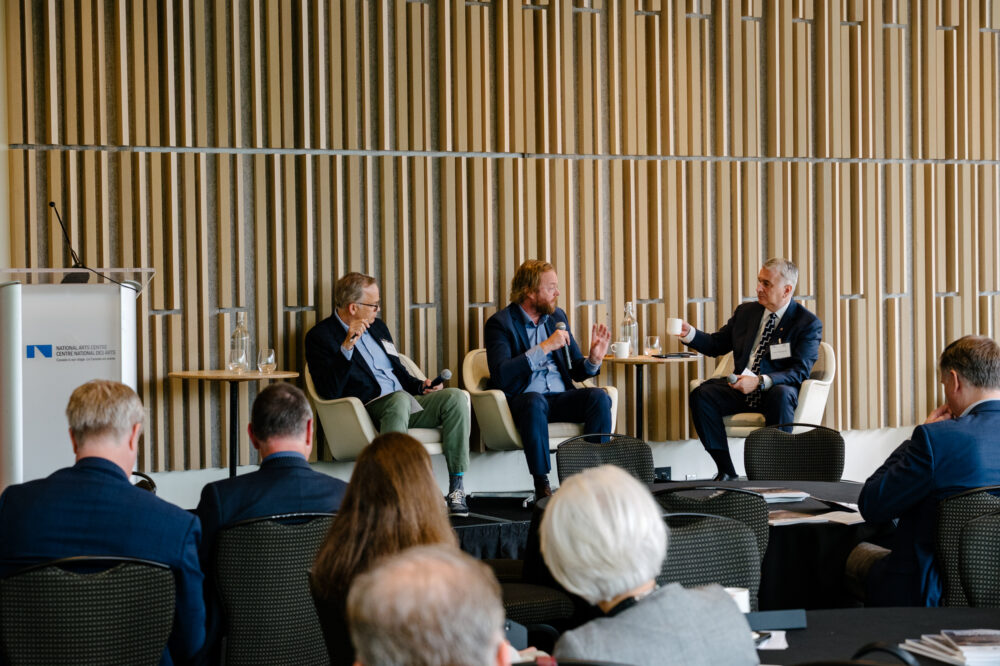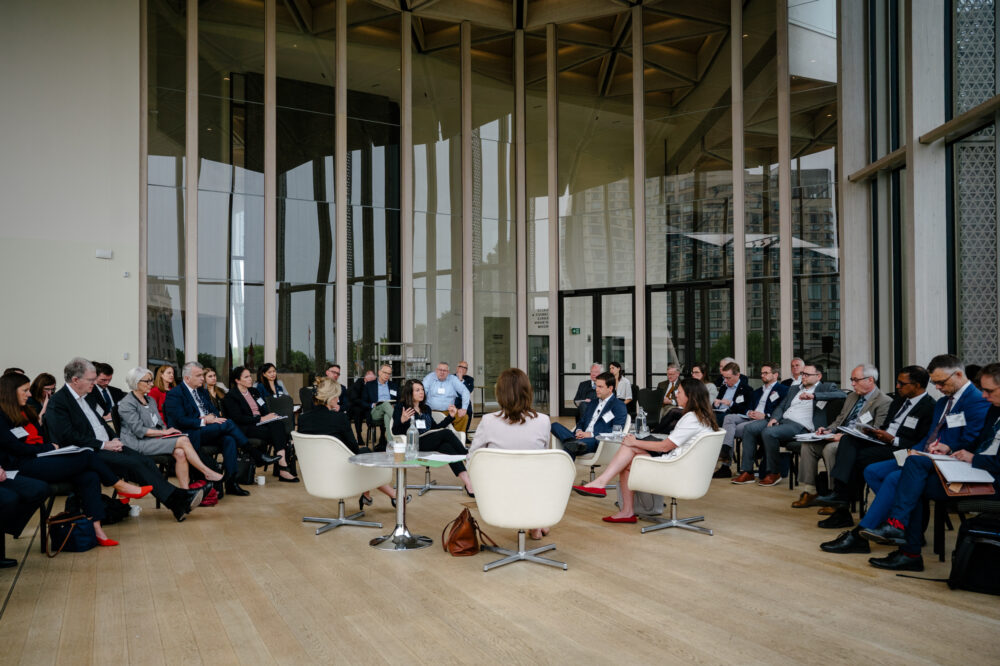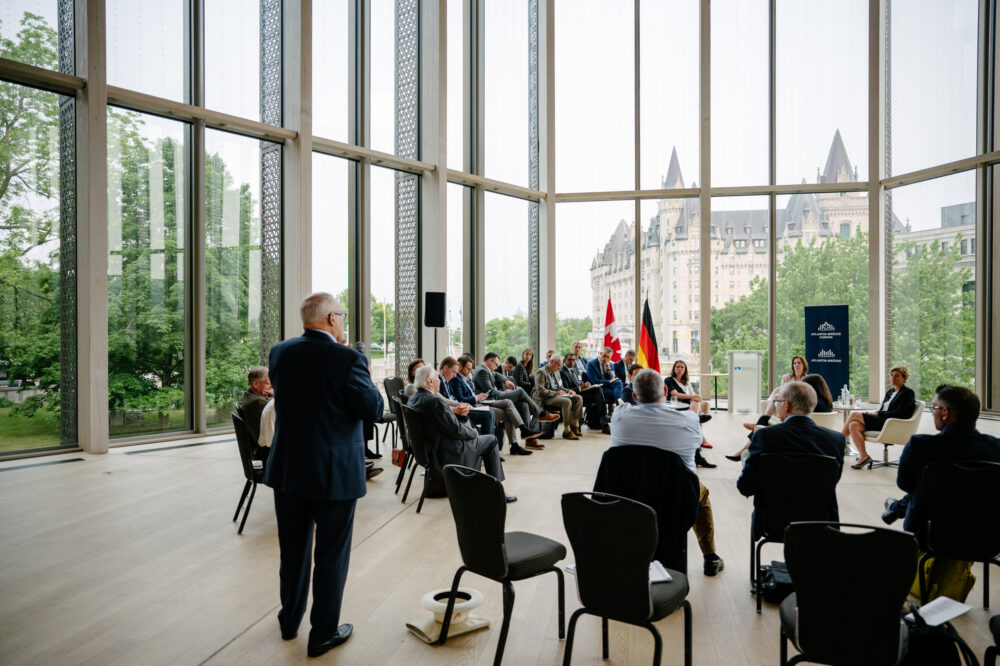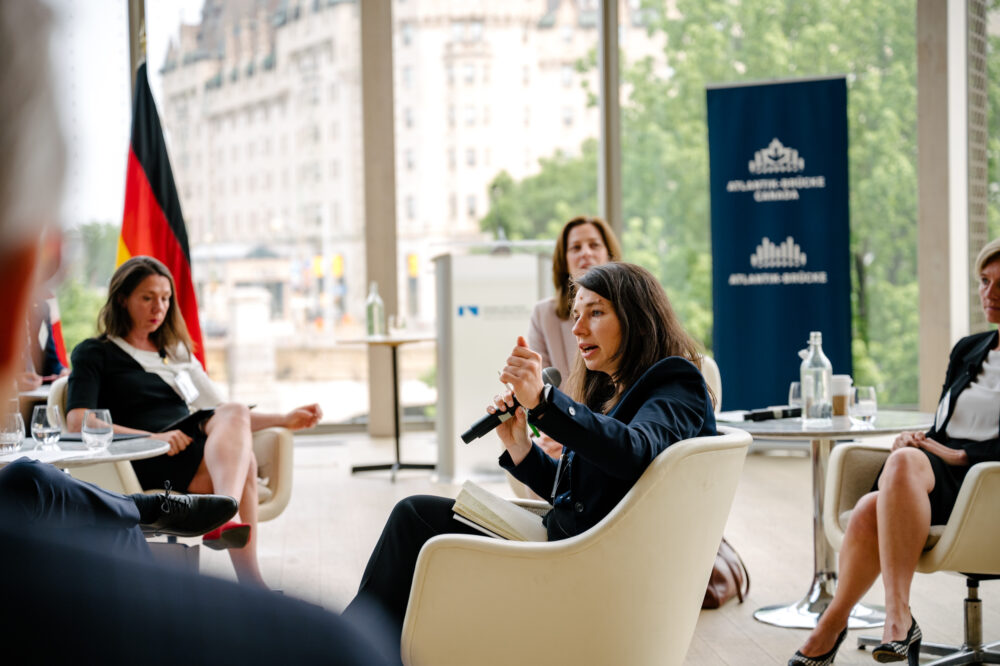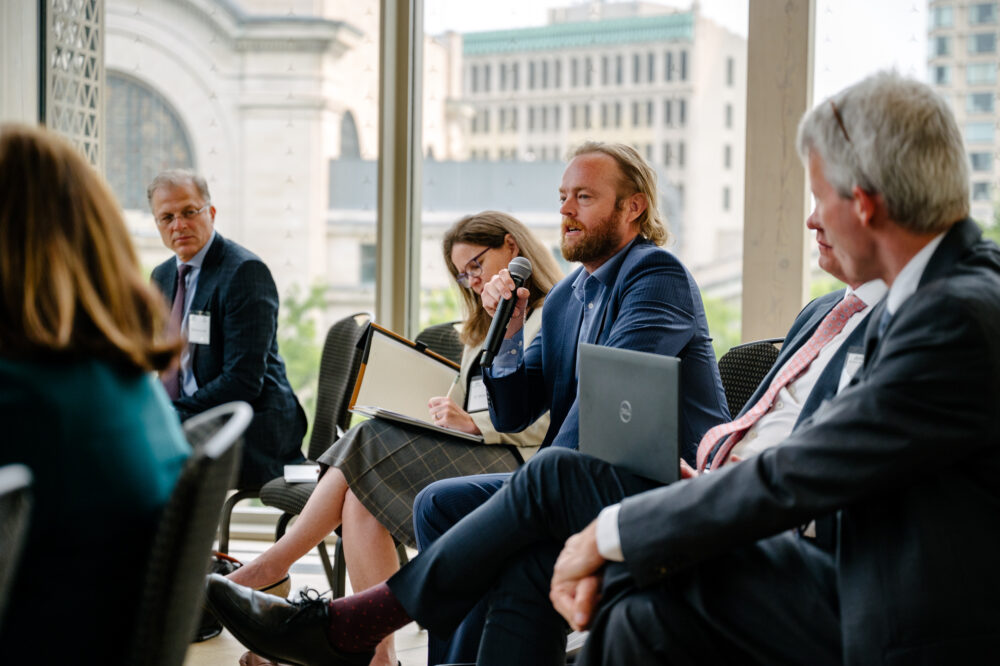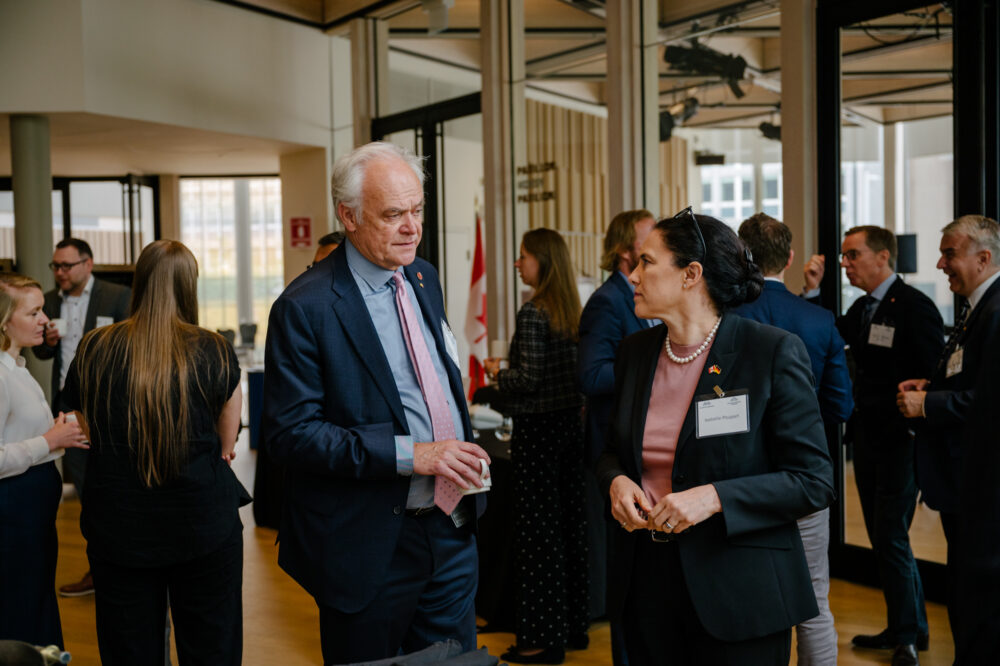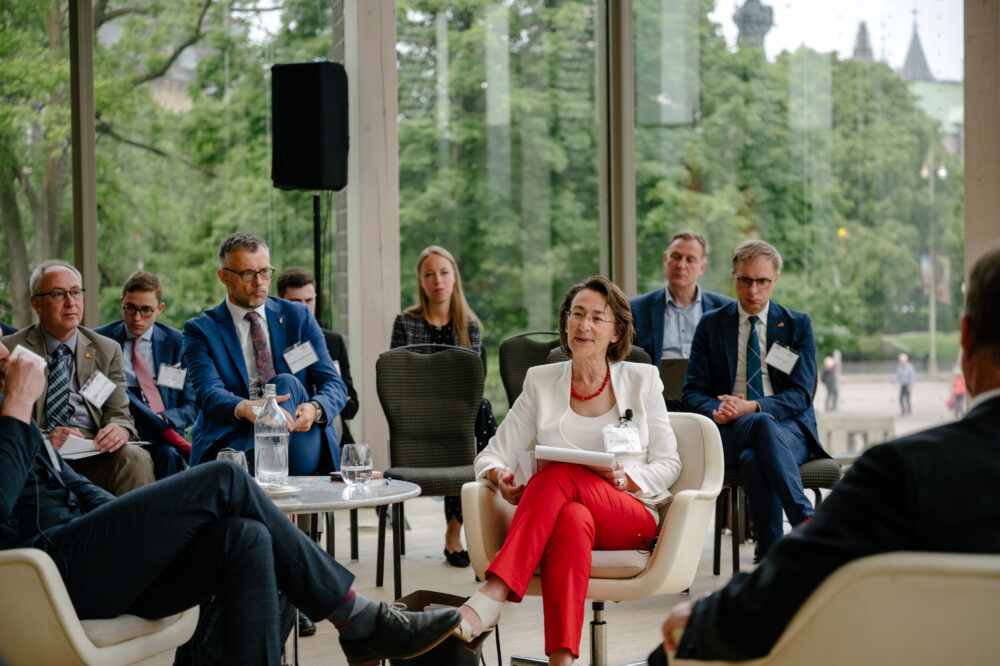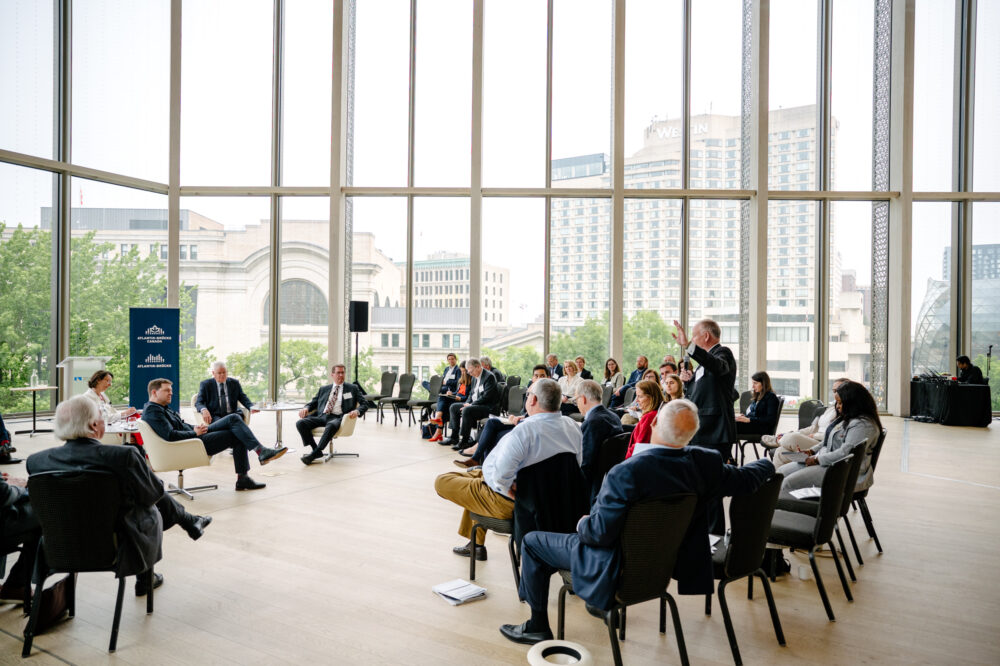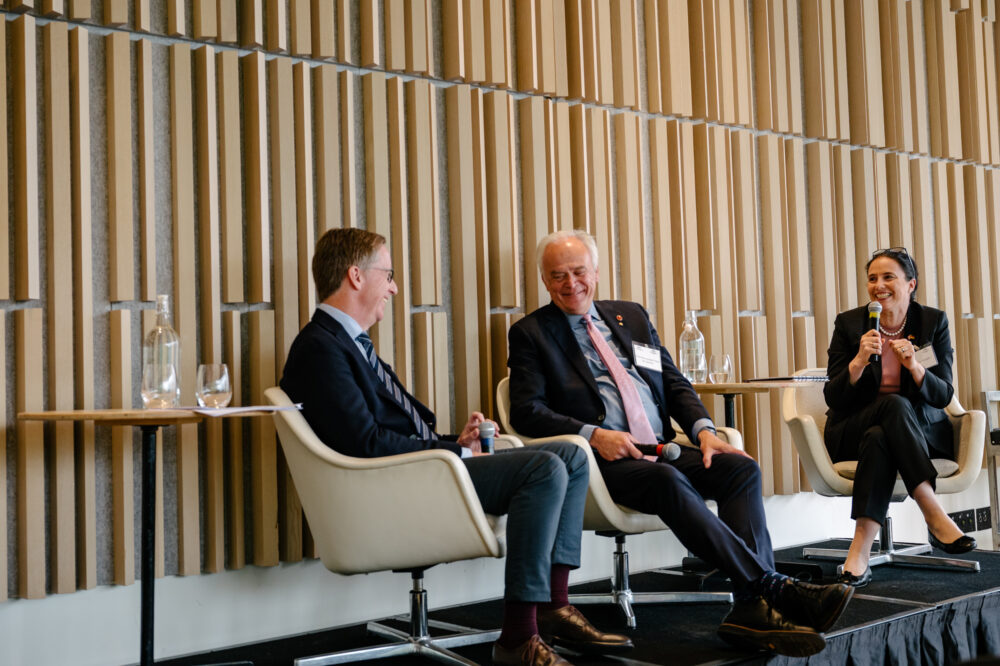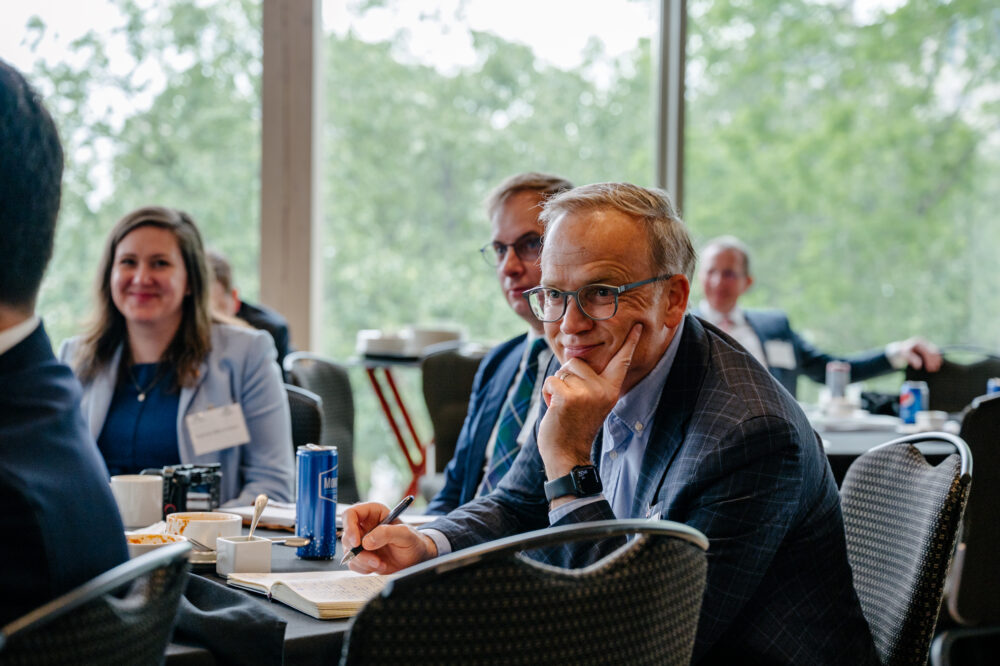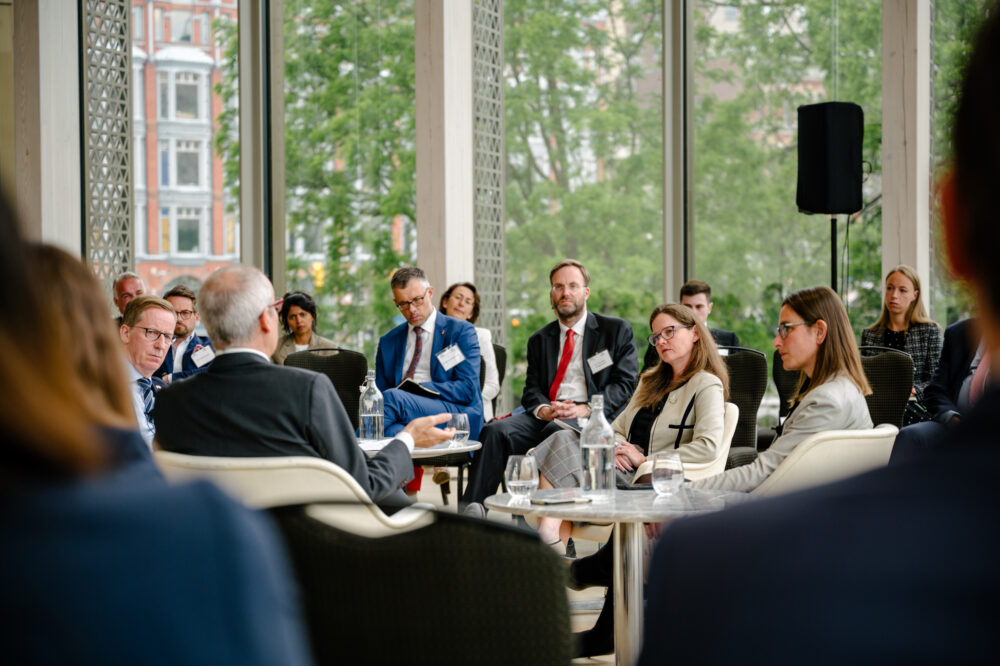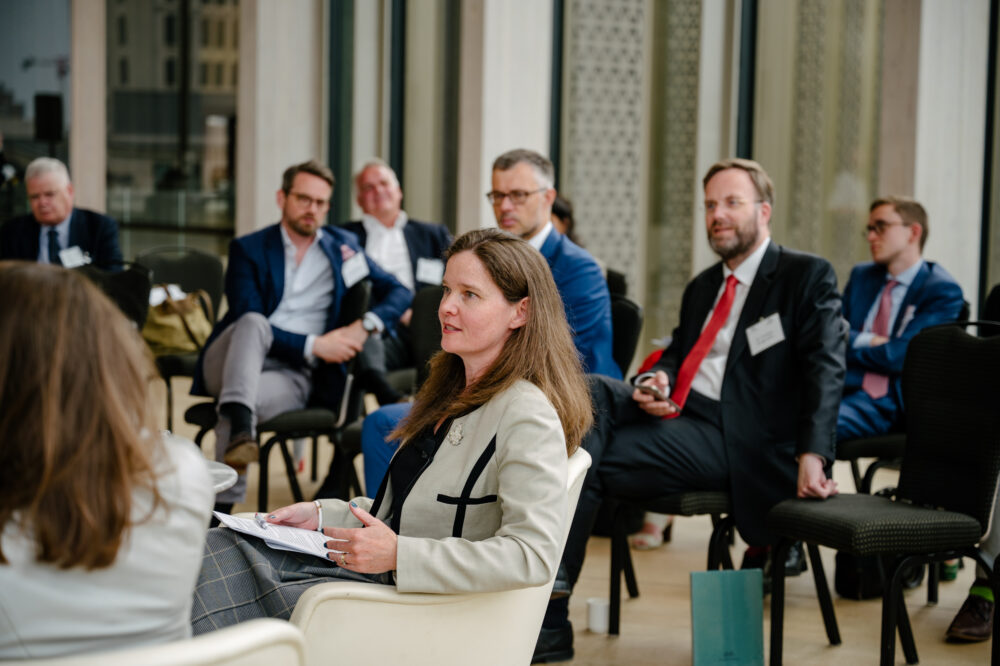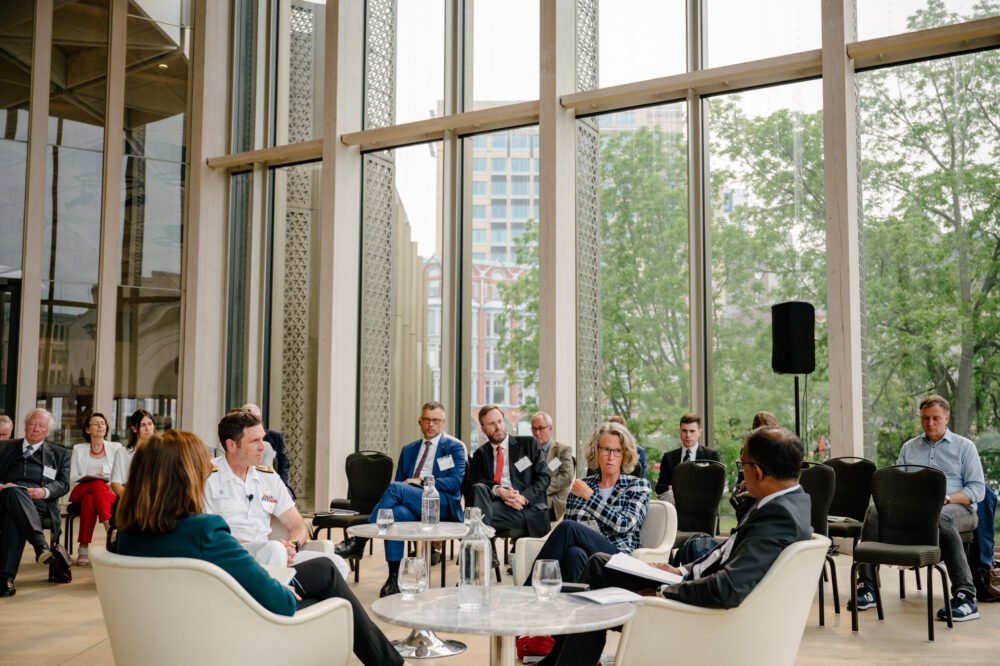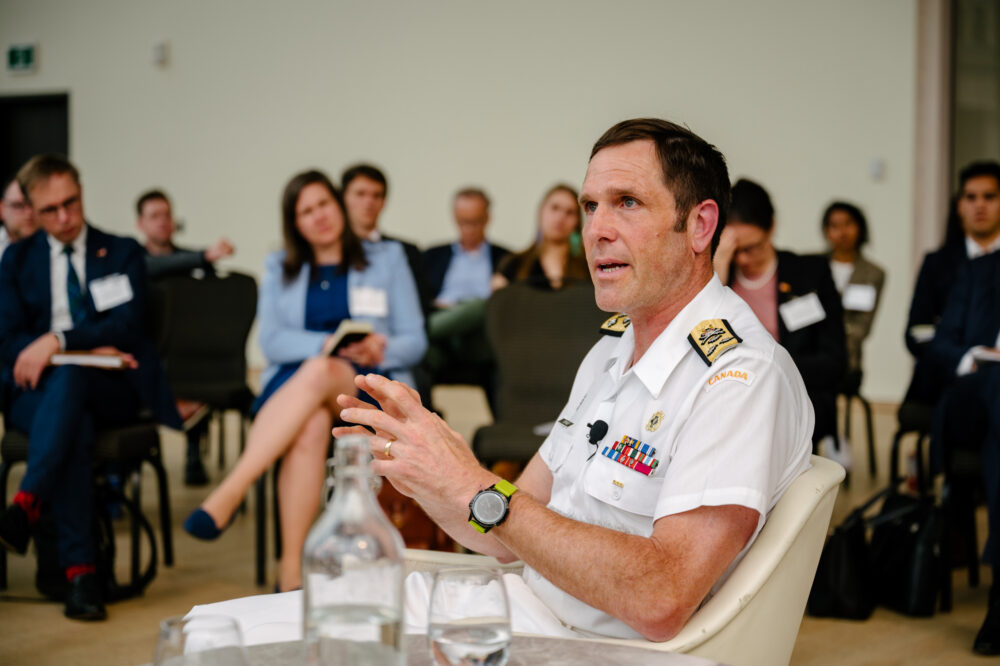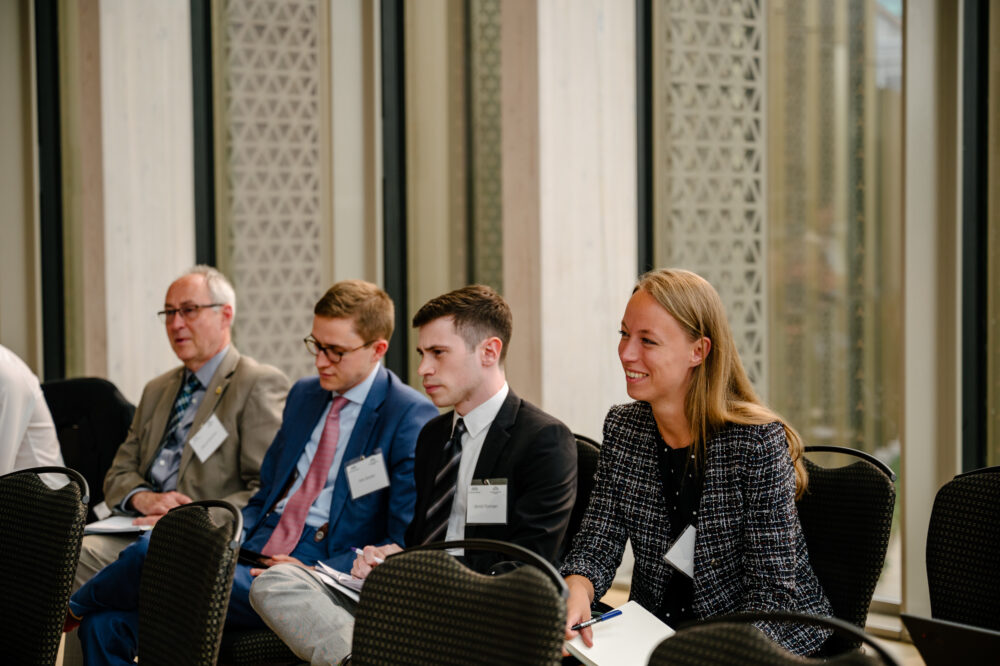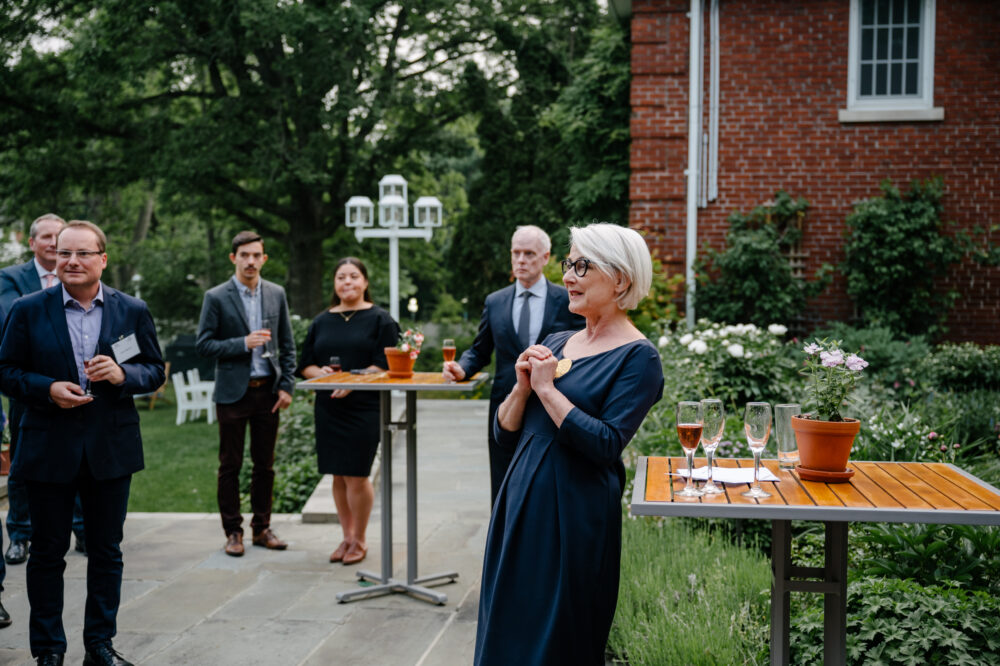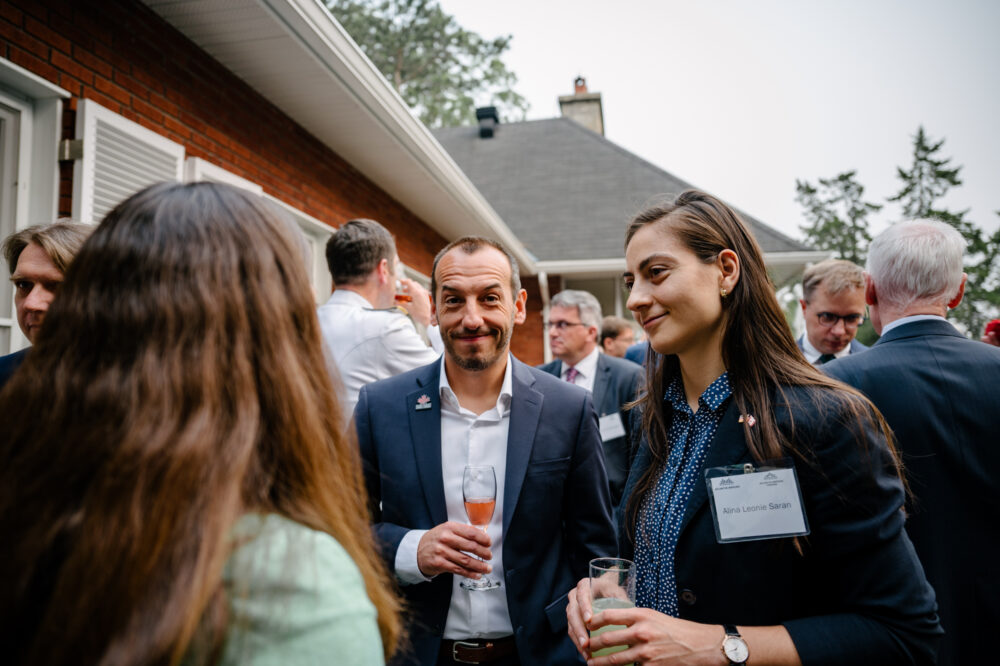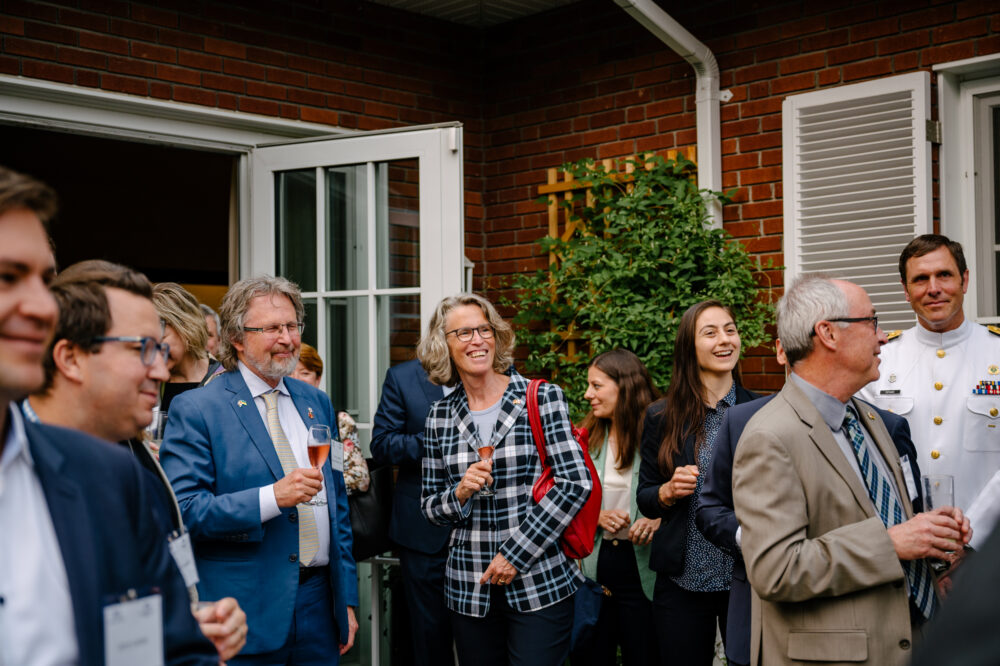Eine Vielzahl geteilter Chancen und Herausforderungen
Die Deutsch-Kanadische Konferenz 2023, die vom 4. bis 5. Juni in Ottawa, Kanada, stattfand, brachte 60 hochrangige Teilnehmer*innen aus beiden Ländern zusammen – darunter Staatssekretärin Susanne Baumann vom Auswärtigen Amt und Simon Kennedy, stellvertretender kanadischer Minister für Innovation, Wissenschaft und wirtschaftliche Entwicklung. Die Delegation diskutierte aktuelle Fragen in vier Themenblöcken: Energie und Umwelt, Innovation und künstliche Intelligenz, Industriepolitik und Lieferketten sowie Verteidigung, Sicherheit und Beschaffung.
Bei den Abendempfängen, die von Global Affairs Canada und in der Residenz der deutschen Botschafterin in Kanada, Sabine Sparwasser, ausgerichtet wurden, konnten die Teilnehmer*innen den Dialog über die deutsch-kanadische Partnerschaft und die gemeinsamen Herausforderungen und Ziele gemeinsam mit den Referenten und anderen Gästen vertiefen.
Report by the Young Atlantiks 2023
Unpacking Canada-Germany Resource Security – Working together for a low carbon future
The conference’s first session dealt with the conditions required to create a Canada-Germany green hydrogen partnership and de-risking low-carbon project planning. The panel reflected on the newly released expert report commissioned by the Konrad Adenauer Stiftung and Atlantik-Brücke Canada, which offered the following recommendations to support the advancement of a stronger partnership and achieve the energy transition: (1) prioritize critical minerals and green hydrogen; (2) increase infrastructure investments; (3) work together on regulations and standards; (4) develop a strategic plan for the partnership; and (5) conduct pilot projects to demonstrate the viability of green hydrogen to boost private investment.
The panel emphasized the need for both vision and action to realize our net-zero commitments. While in Canada recently announced investment tax credits were welcomed, the conversation highlighted how the regulatory environment is not ready to enable the growth of Canada’s clean economy at speed and scale. The inadequacy of regulatory frameworks creates uncertainty, exacerbates risks, and hinders renewable energy and green hydrogen projects.
This issue points to a broader theme that permeated the conversation, which is the important role governments must play in creating policy stability and predictability.
Energy and Environment – Squaring the “energy trilemma“
The session focused on addressing the “energy trilemma”: securing long-term economic growth, achieving progress toward net-zero emissions, and ensuring energy security—all at the same time. Throughout the discussion, the trilemma was extended to a “quadrilemma,” adding Indigenous partnership and reconciliation as a critical, and equal, priority, as well as a potential competitive advantage if done right. The session concluded by proposing a comprehensive action plan (“The 5 Cs”) to solve the quadrilemma: (1) international collaboration between like-minded countries; (2) concentration of the supply chain (building out complete supply chains to improve resilience); (3) building community confidence through ongoing engagement and partnership with Indigenous Peoples; (4) building competitiveness through strategic government interventions; and (5) using smart climate policies to reduce carbon emissions.
Given the budding hydrogen partnership between Canada and Germany, much of the discussion was centered on the role of hydrogen as a solution. It was acknowledged that hydrogen still faces significant challenges which threaten its viability as a critical low-carbon energy source. There are still too few buyers of clean hydrogen, and the technology to produce low-carbon hydrogen has yet to be proven at scale—resulting in an illiquid market, especially when compared to electricity. Additionally, technological challenges in both the use and distribution of hydrogen, especially in shipping, were raised. Put together, these factors underscore the need for de-risking, especially in the initial phase of hydrogen projects, which can be achieved through government support.
A spirit of embracing innovation and adaptability was deemed necessary to tackle the many obstacles ahead as we soldier on into a low-carbon future.
Innovation and Artificial Intelligence – Time for a „pause“?
This session explored the transformative potential of artificial intelligence (AI) in various sectors and underscored the importance of responsible and ethical deployment. The session was augmented by a paper authored by Dominic Martin, Professor at the Université du Québec à Montréal, who joined the discussions. AI was recognized as a pivotal force driving transformation across industries, enabling accelerated innovation and problem-solving. Discussants emphasized that AI can streamline decision-making processes and enhance efficiency across sectors, presenting opportunities for growth and improvement.
While recognizing the need for continued research, attendees discussed the significance of establishing guidelines and red lines that outline what AI should not do. By setting ethical boundaries, AI can be harnessed for the benefit of society while mitigating potential risks and ensuring accountability. One of the challenges that arose in the discussion was the alignment of human will with the actions of the machine, underscoring the complexity of integrating AI into societal norms and expectations.
Participants discussed the growing trend of technological nationalism and emphasized the necessity for international collaboration. Recognizing the global nature of AI’s impact, they advocated for the development of international regulations and standards. Collaborative efforts among nations can facilitate the sharing of best practices, harmonize ethical guidelines, and address common challenges such as bias, accountability, and the rapid pace of AI’s advancements. We should not over or underexaggerate the threat of autonomous AI, but think through the necessary guardrails in research and innovation, similar to those that exist with cloning, that can ensure we harness its benefits.
Discussion on State-to-State Diplomacy
Over lunch, participants debated State-to-State Diplomacy in the context of the current state of German-Canadian relations, as well as the current state of affairs in a global context.
One important distinction was made on the panel: it is not only a changing world, it is a changed world. After the Russian attack on Ukraine, the international stage has changed fundamentally. The conflict has changed the scene and it is unclear how we counter the imperialistic attack. Furthermore, threats like misinformation and disinformation are a big challenge and they got bigger in the last year. Climate change and all the challenges coming with it are very real. Mass migrations, not only between countries but also inside countries are happening more and more.
It remains important as ever to talk with each other and to listen to everyone, to keep friends close by and fostering good connections especially with like-minded partners is active de-risking. Cooperation with like-minded partners needs to be intensified. Whether it is on infrastructure, resources or cooperation on the international stage like the UN: to be active on all these fronts is important.
Industrial Policy and Supply Chains – The promises and pitfalls of a rapid pivot away from three decades of economic liberalism
The challenges and opportunities of state industrial policy and supply chain strategy were reviewed by some of the two country’s most senior officials. The Russian invasion of Ukraine and the COVID-19 pandemic demonstrated the fragility of neglected or undervalued supply chain strategies, with many critical materials heavily relying on only a few countries, creating a ripple effect.
The passage of the United States’ Inflation Reduction Act and the recent investment by Volkswagen in Canada to establish an electric vehicle battery manufacturing facility were discussed as two examples of an increasing trend by governments to play a role in the promotion of a state’s industrial policy, particularly with respect to the transition to green energy.
Panelists acknowledged that the bureaucratic wheel often turns slowly when it comes to approving projects and spurring innovation, but that there was widespread need to future-proof domestic industries, while still delivering the benefits of open, global trading economies. Furthermore, there is still a strong argument for globalization and open trading, but perhaps less with a frame of mind of trading with friends – rather we trade with interests in mind. Countries like Canada and Germany don’t need to have every component for every industry, but we should play some role in critical supply chains.
Defense, Security and Procurement – Honoring commitments to transatlantic security
In the day’s final session, there was universal agreement that Russia’s invasion of Ukraine brought clarity on our shared main challenge ahead: provide a credible deterrence against Russia. In order to reach this goal, widespread reforms are necessary. First, it was emphasized that Germany needs to demonstrate its seriousness about its commitment to a Zeitenwende. Committing more funds for defense projects would not be enough if they did not go hand in hand with providing political leadership, procurement reform, and with an industrial policy providing defense companies with long-term security that their products will be sold.
There was overall agreement that both Canada and Europe cannot operate without US-American leadership. The session highlighted the urgent need for reform within defense procurement in Canada and Germany alike. One panelist remarked that the aim should be to buy off the shelf wherever possible and evolve more of a venture-capital understanding to procurement. It was also stressed that European nations should enhance co-operation on large defense projects.
Young Atlantiks 2023
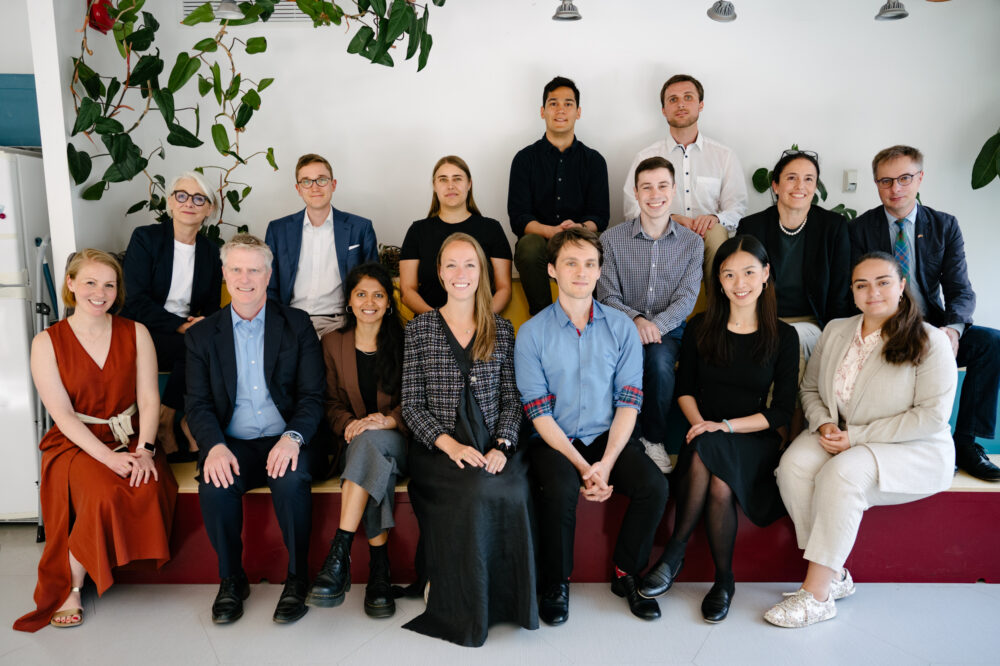
Young Atlantiks Cohort 2023
On the occasion of the German-Canadian Conference, ten young professionals from Canada and Germany met in Ottawa as part of the Young Atlantiks Program. The program offers a small group of young Canadians and Germans the opportunity to exchange and engage on current and future challenges on both sides of the Atlantic and create lasting transatlantic connections. Over a period of six days, the Young Atlantiks exchanged ideas with representatives from politics, science and society and laid the foundation for the next generation of the transatlantic German-Canadian partnership. Highlights of this year’s program included meetings with Germany’s Ambassador to Canada, Sabine Sparwasser and Isabelle Poupart, Chargée d’affaires a.i. of Canada to Germany, working lunches with the Hon. Greg Fergus, MP, and the Hon. Ratna Omidvar, Independent Senator for Ontario, a speed mentoring session with Atlantik-Brücke affiliates and a fireside chat with the Deputy Ambassador of Ukraine to Canada.
The initiative is funded by the Canadian Embassy in Germany and the German Embassy in Canada and jointly realized by Atlantik-Brücke and Atlantik-Brücke Canada. Established in 2019, the program is now in its third year.

